

How to Start a Boutique Business in Kenya

Boutique business in Kenya is a trending business due to the love of fashion, especially by women. It is a profitable business if you get a good business location. The type of clothes your boutique is selling is a factor in the success of your business.
Women's clothes are in higher demand compared to those of men. Therefore, selling women's clothes can generate more sales. Boutique business is best suited in towns where there are a high number of potential customers.
Research the Market
It is crucial that you carry out market research before venturing into the business. It will help you identify clothes that are in demand and a good business location. You also get to know where to get clothes at cheaper prices. It will also help you identify business risks and find ways to mitigate them. Talk to people who are in business and learn the dos and don’ts.
Write a Boutique Business Plan
Once you have researched the market, you can now put the facts down on paper. A business plan states the goals of any business. It should include startup costs , business location, type of clothes to sell, target customers and where to source them at cheaper prices, and the costs of running the business.
Identify a Target Group
Targeting the right customers will help you stock clothes in demand. Market research will help you identify fast-moving clothes. In a business location with a youthful population, you should stock young people's clothes. Also, the clothes your business will be selling, like men’s wear, women's clothes, and baby clothes.
Identify a Boutique Business Location
Before launching your business, find a good business location. Target high- or middle-income areas . It is because people in these areas tend to buy clothes more often. By any chance, they work in offices and need to have a bigger wardrobe.
If you are planning to set up a boutique business in Nairobi , consider Moi Avenue, Village Market, Tom Mboya Street and Westlands as suitable boutique business locations.
Find Reliable Boutique Suppliers
Finding a steady and cheaper clothing supplier is a great deal for your business. It is because it will leave you with higher profit margins and also put you in a better position to compete favorably with your competitors. Where to source your clothes depends on your business location.
Where Can I Buy Clothes for a Boutique Business in Kenya?
If you wish to set up your business near Nairobi, you can source new clothes from Eastleigh at relatively cheaper prices. Other places you can source clothes include Gikomba Market and Kongowea Market in Mombasa. If you are dealing with imported clothes, you can import clothes from Dubai and Turkey.
Acquire Business Licenses
To operate any business in Kenya, you need to get a single business license and permit . Its cost varies from one county to the other. On average, it goes for Ksh 10,000 a year. You can get it from the county offices or the county council offices.
How Much Does it Cost to Start a Boutique Business in Kenya?
The cost of starting a boutique business depends on its size, business location and type of clothing. If you are dealing with locally made clothes, the startup cost will be less compared to that of imported clothes.
You can start a small boutique business selling locally made clothes with about Ksh 200,000 in smaller towns. In towns like Nairobi downtown, you will need over Ksh 500,000 startup costs. The cost of starting a boutique, apart from rent, is relatively the same regardless of location.
How to Arrange a Small Boutique
The way you arrange your boutique determines its success . Neat and well-arranged boutiques tend to attract more customers. The kind of clothes you sell will determine the arrangement. For instance, if you are dealing with all types of clothes, you can have a separate area for women's clothes, men's clothes, and baby clothes.
With that, categorize specific clothes to make it easy for customers to locate them. For instance, in the men’s clothes area, you can have an area for trousers, coats and shirts. It makes your boutique look organized.
Finally, make sure that your boutique has a changing area. It would be best if you had separate changing areas for men and women. It gives your customers the confidence to fit clothes comfortably before buying. Finally, ensure you have mirrors to help customers see how they look when fitting clothes.
Read also: How to Start a Salon Business.
Market Your Boutique Business
Business marketing is important, especially for a newly opened business. Tell people about your business, its location and what you are selling. You can market it through social media , posters and banners, and business cards.
You can also use word of-mouth marketing through your customers. If they like your services, they will spread the word about your business.
For business consultancy, strategic planning, organizational development, market research, financial management & accounting, risk management and business plan writing at an affordable fee, please reach out to us through a phone call 0728 621 138, WhatsApp , or email: [email protected]
Is Owning a Boutique Profitable in Kenya?
Yes. A boutique is a profitable business if you find a good business location. On average, if your business is in a busy location, you can make a profit of between Ksh 1,500 and Ksh 3,000 in a day.
If you target the right group of customers and get a reliable and cheaper clothe supplier, your business will make higher profits. The boutique business tends to make more sales during Christmas festivities . As such, you need to have a huge stock during the month of December. Unfortunately, the boutique business may not do well if it is located in a low income area. If you wish to start selling clothes in such an area, consider the mitumba business .
To start a boutique business in Kenya, you need to research the market, plan your finances and other resources, identify a good business location, get high quality clothes from reliable suppliers and then launch your boutique business.
- How to start a laundry business in Kenya
- How to start a tailoring business in Kenya
- How to start a nail parlour business in Kenya
Get in touch
For business consultancy, business plan writing, market research, strategic planning, risk management, financial management & accounting at an affordable fee, please reach out to us through:
- [email protected]
- +254 728 621 138
- 1503 -01000, Thika KIBS Plaza, Thika
Boutique Business in Kenya: A Complete Guide
- Introduction to Boutique Business in Kenya
The fashion retail industry in Kenya is growing fast. Boutique businesses are doing especially well. From 2020 to 2023, Kenya’s fashion retail market grew by 35%. Boutique businesses made up 40% of this growth. More people are joining the middle class e.g. Kidosho Fashion , African Yuva, etc. They care more about fashion and want unique shopping experiences. This makes it a great time to start a boutique business in Kenya .
Growing Demand
Business benefits, market opportunities, popular niches in kenya, understanding your target market, legal requirements, setting up your physical store, managing your inventory, a. physical store, how to implement business model: physical store or online store, a. for physical stores, b. for online stores, tips for success, essential costs, digital marketing strategies, traditional marketing approaches, customer engagement, pricing factors, pricing models, 1. finding the right location, 2. managing inventory, 3. dealing with competition, 4. seasonal demand, 5. cash flow management, 6. marketing on a budget, 7. keeping up with fashion trends, 8. online competition, 9. staff training and retention, 10. economic fluctuations, 11. supply chain disruptions, 12. technology adoption, their journey, why they succeeded, what we can learn, frequently asked questions.
This guide will help you start and run a successful boutique business in Kenya. We’ll cover:
- Finding your market and niche
- Legal requirements and business setup
- Choosing a location and designing your store
- Managing inventory and working with suppliers
- Marketing strategies and building your brand
- Planning your finances and pricing
- Common challenges and how to solve them
- Success stories and what we can learn from them
Why Start a Boutique Business in Kenya?

Starting a boutique business in Kenya is a good idea for many reasons:
- More people have money to spend on fashion
- People want unique and personal fashion items
- African-made designs are becoming more popular
- People care more about sustainable and ethical fashion
- It costs less to start than bigger retail stores
- You can choose different ways to run your business
- You can quickly adapt to new trends
- You can have both an online and physical store
- There are gaps in the market for specific fashion types
- People want exclusive and custom-made clothes
- African fashion is becoming popular worldwide
- You could expand to other countries in the region
Finding Your Boutique’s Niche and Target Market
To be successful, you need to find the right niche and understand your target market:
- Modern African fusion wear
- High-end western fashion
- Clothes for pregnant women and children
- Formal and office wear
- Accessories and jewelry
- Eco-friendly fashion
- Age and lifestyle of your customers
- How much money they have to spend
- What fashion styles they like
- How they prefer to shop (online or in-store)
- Where they live and how easy it is for them to reach you
Setting Up Your Boutique: What You Need
To start a boutique business in Kenya, you need to plan carefully and follow the law:
- Register your business
- Get a Kenya Revenue Authority (KRA) PIN
- Get a business permit from your county
- Get a fire safety certificate
- Get insurance
- Choose a good location
- Design your store layout
- Install fitting rooms and mirrors
- Set up display areas and lighting
- Create storage solutions
- Get a point of sale system
- Choose your first stock
- Find and negotiate with suppliers
- Check the quality of your products
- Use systems to track your stock
- Plan for different seasons
Choosing Your Business Model: Physical Store or Online Store

- Talk to customers face-to-face
- Let customers try products right away
- Help customers with personal styling
- Build strong relationships with customers
- Let customers touch and feel products
- No waiting for delivery
- Customers get what they want right away
- Easy exchanges and returns
- Get quick feedback on new products
- Create eye-catching displays
- Change window displays with seasons
- Use live models to show off clothes
- Make your store layout interactive
- Pay rent every month
- Pay for utilities (electricity, water)
- Keep the store in good condition
- Pay for security
- Pay for insurance
- Pay salaries
- Train your staff
- Make staff schedules
- Deal with staff leaving
- Check how well staff are doing
B. Online Store
- Sell to people all over Kenya
- Sell to people in other countries
- Be open 24 hours a day, 7 days a week
- No limits on where you can sell
- Grow your business more easily
- No need to pay rent for a store
- Need fewer staff
- Pay less for utilities
- Spend less on displays
- Manage inventory more flexibly
- Easy to track how well you’re doing
- Target your ads to the right people
- Use social media easily
- Send marketing emails
- Learn about customer behavior
- Coordinate shipping
- Make sure deliveries are on time
- Handle packages carefully
- Process returns
- Keep track of inventory
- Customers can’t be sure about size and fit
- Less personal interaction with customers
- Customers can’t try products before buying
- Harder to help customers with styling
- Need to build trust with customers
C. Hybrid Model (Physical + Online)
- Have a local physical store
- Reach customers all over Kenya online
- Give customers multiple ways to shop
- Have different sources of income
- Make your brand more visible
- Let customers buy online and pick up in-store
- Let customers return online purchases in-store
- Promote across both channels
- Be flexible with your inventory
- Make shopping more convenient for customers
- Choose a great location
- Create a unique shopping experience
- Offer personal styling services
- Host special events for VIP customers
- Launch new products in-store
- Make a website that’s easy to use
- Make sure it works well on mobile phones
- Use secure payment systems
- Let customers try on clothes virtually
- Provide good customer service online
Technology You’ll Need
- Point of Sale (POS) system
- Software to manage inventory
- Security cameras
- Payment terminals
- Customer database
- Digital displays
- Mobile payment options
- Wi-Fi for customers
- Software to schedule employees
- Customer loyalty program
- Website hosting
- Shopping cart system
- Payment gateway
- Order management
- Customer account portal
- Product photography
- Size guide system
- Analytics tools
- Email marketing platform
- Social media management
Making Your Choice
Consider These Factors:
- How much money you have to start
- How much you can spend on running costs
- Your marketing budget
- How much you can spend on technology
- How many staff you can hire
- How your customers prefer to shop
- Where your customers live
- How old your customers are
- How comfortable they are with technology
- How they like to buy things
- How much your products cost
- How many sizes you need to offer
- If customers need to try before they buy
- How easy it is to ship your products
- How often customers might return items
- How you want to grow
- How you want people to see your brand
- How much of the market you want to reach
- What level of service you want to offer
- Your long-term vision
- Give great customer service
- Create memorable shopping experiences
- Keep changing your store layout
- Train your staff well
- Get involved in your local community
- Use high-quality photos
- Give detailed product descriptions
- Offer quick and helpful customer support
- Be active on social media
- Make it easy for customers to buy
- Keep prices the same online and in-store
- Use one system to manage all inventory
- Keep your brand consistent
- Train staff to help customers both online and in-store
- Create marketing that works for both channels
Starting Costs for a Boutique Business
It’s important to understand how much money you’ll need to start:
- Rent deposit (usually 3 months)
- Costs to renovate the space
- Interior design
- Setting up utilities
- Buying your first stock
- Seasonal collections
- Accessories and matching items
- Extra stock for emergencies
- Display units and hangers
- Mirrors and lighting
- Point of sale system
- Security systems
- Store furniture
- Registering your business
- Getting licenses and permits
- Marketing materials
- Hiring and training staff
Marketing Your Boutique Business in Kenya
Good marketing is crucial to attract and keep customers:
- Be active on social media (Instagram, Facebook, TikTok)
- Use professional photos to show your products
- Work with influencers
- Make sure your website works well on mobile phones
- Take part in local fashion events
- Get involved in your community
- Advertise in fashion magazines
- Partner with other businesses
- Encourage word-of-mouth referrals
- Offer style advice
- Write fashion blogs and newsletters
- Host exclusive preview events
- Create a VIP customer program
- Run fashion styling workshops
Pricing Strategies for Your Boutique Business in Kenya
Develop a pricing strategy that makes you money but keeps you competitive:
- How much the product costs you
- How much your target market can afford
- What your competitors are charging
- How much you need to cover your costs
- Charge more for exclusive items
- Use mid-range prices for regular collections
- Have lower prices for basic items
- Offer deals on matching items
- Use discounts during different seasons
Challenges in Running a Boutique Business in Kenya
- Research foot traffic in different areas
- Consider up-and-coming neighborhoods
- Look for spaces near complementary businesses
- Negotiate lease terms with landlords
- Use inventory management software
- Track sales trends closely
- Build relationships with flexible suppliers
- Implement a just-in-time inventory system
- Find a unique niche or style
- Offer exceptional customer service
- Create a strong brand identity
- Host special events or workshops
- Plan seasonal promotions
- Diversify your product range
- Offer layaway or pre-order options
- Use off-season times for planning and store improvements
- Maintain a cash reserve
- Offer multiple payment options to customers
- Negotiate better terms with suppliers
- Consider a line of credit for emergencies
- Leverage social media marketing
- Collaborate with local influencers
- Participate in community events
- Attend fashion shows and trade events
- Follow fashion blogs and influencers
- Listen to customer feedback
- Stock a mix of trendy and classic items
- Create a unique in-store experience
- Offer personalized styling services
- Develop an online presence to complement your physical store
- Focus on products that benefit from in-person shopping
- Offer competitive wages and benefits
- Provide ongoing training and development
- Create a positive work environment
- Offer performance-based incentives
- Build a loyal customer base
- Keep some cash reserves
- Stay flexible and ready to pivot when needed
- Work with multiple suppliers
- Order popular items in advance
- Be transparent with customers about delays
- Consider local sourcing options
- Start with essential systems like POS and inventory management
- Gradually introduce new tech as budget allows
- Train staff thoroughly on new systems
- Stay informed about retail tech trends
Success Story: African Yuva Fashion Boutique, Nairobi
- Started in 2018 with a small shop in Westlands
- Now has a store and an online shop
- Specializes in modern African fusion wear
- Grows by 40% each year
- Created a strong brand identity
- Provided excellent customer service
- Chose great locations
- Managed their inventory well
- Used social media effectively
- Start small but plan to grow
- Focus on giving customers a great experience
- Maintain high-quality standards
- Build strong relationships with suppliers
- Be ready to adapt to changes
Starting a boutique in Kenya is an exciting chance for fashion lovers. To succeed, you need:
- A clear understanding of your market
- Strong systems for running your business
- Good ways to engage with customers
- Strategies that can adapt to changes
- To keep innovating
The future looks bright for boutique businesses in Kenya. More and more people want unique, personal fashion experiences. By following this guide, you can build a successful boutique business in Kenya’s competitive market. Focus on quality and customer service to stand out.
Starting a boutique in Kenya can cost between Ksh 100,000 and Ksh 1,000,000. The cost depends on where your store is, what kind of clothes you sell, and whether you have a physical store or an online store.
You can buy clothes from local Kenyan designers, Nairobi’s Eastleigh market, or import them from Turkey, China, and Dubai.
To open a boutique, you need a business permit from your local county government and a KRA PIN. If you’re importing goods, you also need an import declaration form (IDF).
- Mitumba Business in Kenya: Complete Guide
- 30+ Best Online Businesses in Kenya That Pay Through M-Pesa
Related Posts

How to Start a Successful Event Planning Business in Kenya

How to Start a Successful Cleaning Business in Kenya

How to Start a Fashion Design Business in Kenya

How to Start a Profitable Laundry Business in Kenya
Bizhack Kenya
Think Once.Think Twice.Think Business.
How to Start a Boutique Business in Kenya
By Tristram Ouma

Last updated on March 2nd, 2024 at 05:41 pm
Starting a boutique business in Kenya can be a profitable venture with the right planning and execution. Here is a step-by-step guide on how to start a boutique business in Kenya.
Starting Cost Breakdown
Also Checkout: How to Start an Electronic Business in Kenya
Choosing the right location is crucial for the success of your boutique business. Ideally, you should look for a location that is easily accessible, has high foot traffic, and is in an area where your target market resides. Additionally, the location should be secure and have adequate parking.
Requirements
To start a boutique business in Kenya, you will need to fulfill the following requirements:
- Business registration: Register your business with the Registrar of Companies or Business Registration Service.
- Licenses and permits: Obtain licenses and permits from the county government, including a trading license, fire safety certificate, and public health certificate.
- Tax registration: Register your business for tax purposes with the Kenya Revenue Authority.
- Bank account: Open a business bank account to manage your finances.
Market size
The Kenyan fashion industry is growing rapidly, and there is a significant demand for quality clothing and accessories. Your target market may include young adults, working professionals, and fashion enthusiasts.
Earnings per Day
The earnings per day for a boutique business in Kenya can vary depending on the location, size, and pricing strategy. On average, you can expect to earn between KES 5,000-10,000 per day. However, during peak seasons or special occasions, such as holidays, the earnings can go up significantly.
Pros and Cons
Here are some pros and cons of starting a boutique business in Kenya:
- High-profit margins: With the right pricing strategy and customer base, you can earn high profits.
- Creative freedom: As a boutique owner, you have the freedom to curate your collection and express your creativity.
- Growing market: The fashion industry in Kenya is growing rapidly, creating more opportunities for boutique businesses.
- High competition: There is stiff competition from other boutiques, both online and offline.
- High initial investment: Starting a boutique requires significant capital investment, which may not be feasible for everyone.
- Inventory management: Managing inventory and keeping up with the latest fashion trends can be challenging.
Starting a boutique business in Kenya requires a significant investment of time, money, and effort. However, with the right strategies and planning, you can build a successful and profitable business.
Don't Miss
How can the kenyan government help smes, how to start a real estate business in uganda, how to start an electronics business in uganda, simple ways to increase fuliza limit, “the lucrative leap: from cows to goats in kiambu’s dairy revolution”, from reggae star to murder suspect: the twisted tale of john matara, gladys shollei talks about her scholastic challenges, saying, “i used to rank last in school.”, discover more from bizhack kenya.
Subscribe now to keep reading and get access to the full archive.
Type your email…
Continue reading

How To Start A Boutique Business In Kenya Easily For Profits

Fashion is what most people love. Dressing up in a modern style builds confidence in everything and improves your smile. Fashion outfits are always available in boutiques.
Therefore,starting a boutique business in Kenya will make you earn more income on a daily basis because people dress up daily.
In addition, I would advise you to majorly sell ladies and children outfit because they are always into trendy fashion than men although you should also have men’s wear at a minimum.
Are you wondering how to start a boutique business in Kenya? This article will be an eye opener for you because I am going to show you how to start a boutique business in Kenya:
1. Thorough research of the market as it will help you know the types of outfit in demand.
2. Write a strategic boutique business plan as this will help you achieve your profit goals. Remember,how to start a boutique business plan determines your level of success.
3. Choose your target market for example women, children, youths.
4. Select your preferred strategic position to set up your boutique business plan.
5. Find yourself trusted suppliers.
6. Get a boutique business license to avoid being disrupted by the lawsuits.
7. Rent a space at that strategic location.
8. Hire few personnel that will help you run your boutique.
9. Buy the necessary items for the start and you will top up more staff with time.
That is how to start a boutique business from home without spending much money.
In addition, you may also want to know how to start a boutique business online which is very simple. Simply have your own website where you can advertise your products online.
Cost Of Starting A Boutique In Kenya
How much do you need to start a boutique in Kenya? It cost an average of Ksh.50,000 to Ksh. 100,000 to start your boutique business in Kenya.
Besides, you can still invest more money depending on your budget.
Profitability Of Boutique
You may be wondering, is boutique business profitable? Yes, boutique business is highly profitable as you will purchase clothes at a relatively lower price and sell it at a higher price thus earning more profits.
Places To Buy Clothes
Are you wondering where to buy clothes to start a boutique? You can buy from merchants who import their clothes from overseas such as the sellers in Eastleigh specifically in Garissa market for new clothes, shoes, bags, and accessories.
These sellers sell bulk clothes in at a cheaper wholesale price. Also, Kamukunji in Nairobi have new clothes.
If you are dealing with mtumba, then Gikomba is a good place for you. For baby clothes, you can also check out Toy market.
Ways To Arrange A Small Boutique
Are you worried that your boutique is too small. Worry less because I have an idea that will help you. This is how to arrange a small boutique:
Firstly, ensure your boutique is neat enough to attract more customers.
Separate outfit like ladies outfit on one side, children’s outfit on the other side so as to avoid confusion.
Let classy clothes appear first to attract people so as to be able to sell more clothes.
Changing area is also key in your arrangement so that people can try outfits before buying. Separate male changing area from females.
New Boutique Checklist
Opening a boutique checklist involves having:
1. A business plan.
2. Decorations.
3. Racks and shelves.
4. Payment system.
5. Merchandise.
In brief, boutique business will help you become successful in life in terms of money due to high incomes at the end of the tunnel. Invest today in your boutique and enjoy the fruits in future.
Kenyans Consult
At Kenyans Consult, we are proud Kenyan writers. We write anything that pertains to Kenya and is worth sharing. We hope to share more about Kenya with the world through our writing. Check our articles to learn more about Kenya.
Recent Posts
Newcastle vs Arsenal: Clash of Titans - Live Stream, Team News, and More
In an electrifying face-off at St. James' Park, Newcastle United braces itself to challenge the unstoppable Arsenal this Saturday at 1:30pm ET. The Premier League battle promises intense action and...
Government Spokesman Office Finds New Home at the Presidency
In a groundbreaking move that heralds a new era for government communication, the office of the government spokesperson has been relocated from the Ministry of Information, Communication, and the...
How to Start a Successful Boutique Business in Kenya

Kenyans love to buy trendy clothes.
And that makes a boutique business incredibly rewarding. So, if you’d love to start a boutique business, you’re in the right place.
In this article, I’ll take you through:
- 7 steps to start a boutique business
- How to arrange your boutique
- How to market your boutique business effectively
- Tips to run your boutique business successfully
Sounds great? Let’s get started!
7 Steps to Start a Boutique Business in Kenya
In this section, I’ll take you through 7 simple steps to start and run a successful boutique business.
1. Conduct In-Depth Market Research
Before you invest in your boutique, conducting thorough market research is crucial.
Here are ways you can do thorough market research before setting up your boutique business:
- Survey potential customers to understand preferences.
- Analyze competitors to identify strengths and weaknesses.
- Visit local markets and boutiques to observe trends.
- Use online tools to track fashion trends and consumer behavior.
- Gather feedback through focus groups or interviews.
- Research suppliers for quality and cost comparisons.
- Study demographic data to target the right audience.
- Monitor social media for insights on customer interests.
- Attend fashion shows and trade events to spot new trends.
- Review industry reports and market analyses.
Conducting market research will help you:
- Learn which types of clothing are popular in your chosen location. This could range from casual wear to formal attire.
- Identify areas with high foot traffic and potential customers. Urban centers and affluent neighborhoods often provide better business opportunities.
- Understand who your competitors are, what they offer, and how you can differentiate your boutique.
- Find reliable suppliers who can provide quality clothing at competitive prices.
- Talk to potential customers to understand their preferences and buying behavior.
2. Develop a Comprehensive Business Plan
Once you have all the facts in place, you can now write your business plan.
Your business plan should:
- Define short-term and long-term objectives.
- Outline all initial expenses, including rent, inventory, licensing, and marketing.
- Choose a strategic location based on your research.
- Identify your primary customer base (e.g., women, men, children).
- Detail where and how you will source your clothing.
- Describe day-to-day operations, including staffing, inventory management, and customer service.
3. Identify Your Target Audience
Understanding your target market will help you stock the right clothes and create effective marketing strategies.
Consider the following:
- Demographics : Age, gender, income level, and lifestyle of your potential customers.
- Preferences : Fashion trends and clothing preferences in your chosen location.
- Buying Behavior : Factors that influence their purchasing decisions, such as quality, price, and brand loyalty.
4. Select a Prime Business Location
The success of your boutique heavily depends on its location.
Here are some tips for choosing the right spot:
- Opt for areas with high pedestrian activity, such as shopping malls, busy streets, or market areas.
- Target middle to high-income neighborhoods where residents have more disposable income for fashion purchases.
- Being near other fashion-related businesses can attract more customers.
If you’re in Nairobi, consider prominent locations like Moi Avenue, Village Market, Tom Mboya Street, and Westlands.
How to Start a Successful Butchery Business in Kenya
How to start a thriving mitumba business in kenya, how to start a business in kenya: everything you want to know, 5. secure reliable suppliers.
Finding dependable suppliers who offer quality clothing at reasonable prices is vital.
For boutiques near Nairobi, Eastleigh is a goldmine for affordable new clothes.
Gikomba Market and Kongowea Market in Mombasa are also excellent sources. If you prefer importing, consider suppliers from Dubai and Turkey.
6. Obtain Necessary Licenses and Permits
Operating legally is non-negotiable. Obtain a single business permit, which averages Ksh 10,000 annually, from your local county offices.
This ensures you can run your boutique without legal interruptions.
7. Estimate Your Startup Costs
Startup costs can vary significantly based on your business size and location.
Here’s a breakdown:
- Starting a boutique in a smaller town with locally made clothes might require around Ksh 200,000.
- In cities like Nairobi, expect to invest over Ksh 500,000 due to higher rent and inventory costs.
How to Organize Your Boutique for Success
An organized boutique enhances customer experience and boosts sales.
Follow these tips:
- Layout : Design your store with clear sections for different types of clothing (e.g., women’s, men’s, children’s).
- Display : Use mannequins, racks, and shelves to showcase your best pieces.
- Changing Rooms : Provide comfortable changing areas with mirrors for customers to try on clothes.
- Cleanliness : Keep your store neat and tidy to create an inviting shopping environment.
How to Market Your Boutique Effectively
Marketing your boutique effectively is crucial for attracting customers, building brand awareness, and driving sales.
Here are some strategies:
- Social Media : Use platforms like Facebook, Instagram, and Twitter to showcase your products and engage with customers.
- Local Advertising : Utilize posters, banners, and business cards to reach local shoppers.
- Word of Mouth : Encourage satisfied customers to spread the word about your boutique.
- Promotions : Offer discounts and special deals to attract new customers and retain existing ones.
Tips to Run a Boutique Business Successfully
Here are some tips to help you operate your boutique effectively.
- Know your target customers’ preferences and shopping habits.
- Keep up with the latest fashion trends to meet customer demand.
- Ensure your products are of good quality to build customer trust and loyalty.
- Design an organized and aesthetically pleasing store to enhance the shopping experience.
- Provide personalized assistance and foster a friendly atmosphere.
- Promote your boutique through social media, local advertisements, and events.
- Keep track of stock levels and reorder popular items promptly.
- Ensure a reliable supply of quality products at competitive prices.
- Balance affordability with quality to attract and retain customers.
- Organize in-store events and offer discounts to draw in customers.
- Regularly ask for and act on customer feedback to improve your offerings.
- Ensure your employees are knowledgeable about products and customer service techniques.
- Keep your boutique clean and visually appealing at all times.
- Stay flexible and adjust your business strategies based on market trends and customer feedback.
- Keep a close eye on your finances to manage expenses and maximize profits.
Is Owning a Boutique Profitable in Kenya?
Absolutely! With the right location and a reliable, cost-effective supplier, you can enjoy substantial profits.
In a busy area, daily profits can range from Ksh 1,500 to Ksh 3,000.
Peak sales periods, like Christmas, offer opportunities for even higher earnings. Ensure you stock up adequately during festive seasons.
Final Thoughts
That’s it!
Now you have all the necessary knowledge on how you can start and run a successful boutique business.
Remember, you’ll need patience, creativity, and dedication to build a thriving boutique.
Success in the fashion industry requires constant adaptation and a keen eye for trends, but with these tips and strategies, you’re well on your way to making your boutique a favorite shopping destination.
Related Posts

Selling second-hand clothes is the most lucrative business endeavor in Kenya. That’s because a large part of the Kenyan population […]

Starting a business is a dream for many Kenyans who’d want to carve their path in the vibrant and growing […]

How to Make Good Money From Coriander (Dhania) Farming
Coriander, also known as dhania in Kenya, holds a special place in local cuisine, enriching dishes with its distinctive aroma […]

We all love meat. Whether it’s nyama choma, wet fry, meatballs, or mshikaki, meat slaps with flavor. And this makes […]
Leave a Comment Cancel Reply
Your email address will not be published. Required fields are marked *
Save my name, email, and website in this browser for the next time I comment.

9 Easy Steps: How to Start a Boutique Business in Kenya
- 26 November 2023 26 November 2023
- 1 How to Start a Boutique Business in Kenya
- 2 Step 1: Market Research and Niche Identification
- 3 Step 2: Create a Detailed Business Plan
- 4 Step 3: Legal Requirements and Registration
- 5 Step 4: Source Unique and Quality Inventory
- 6 Step 5: Set Up an Inviting Physical or Online Space
- 7 Step 6: Develop a Marketing Strategy
- 8 Step 7: Embrace E-commerce and Technology
- 9 Step 8: Provide Exceptional Customer Service
- 10 Step 9: Monitor and Adapt
- 11 Conclusion:
How to Start a Boutique Business in Kenya
Embarking on the journey of starting a boutique business in Kenya is an exciting venture filled with creative possibilities. From curating unique fashion pieces to creating a personalized shopping experience, a boutique business offers entrepreneurs the opportunity to make a mark in the fashion industry. In this step-by-step guide, we’ll walk you through the process of launching your own boutique in Kenya.
Step 1: Market Research and Niche Identification
Before delving into the intricacies of starting your boutique, it’s crucial to conduct thorough market research. Identify your target audience, understand local fashion trends, and pinpoint the unique selling proposition (USP) that will set your boutique apart.
In the initial phase of starting a boutique business in Kenya, comprehensive market research is essential for success.
Step 2: Create a Detailed Business Plan
A well-thought-out business plan serves as the roadmap for your boutique. Outline your business goals, target market, budget, and marketing strategies. Be sure to include details on your boutique’s location, inventory selection, and pricing strategy.
Crafting a detailed business plan is a critical step in laying the foundation for your boutique business in Kenya.
Step 3: Legal Requirements and Registration
Navigate the legal landscape by registering your boutique business. Obtain all necessary licenses and permits, ensuring compliance with local regulations. This step is vital to avoid potential legal issues that could arise in the future.
Ensuring legal compliance through proper registration is a crucial step in starting a boutique business in Kenya .
Step 4: Source Unique and Quality Inventory
The success of your boutique hinges on the uniqueness and quality of your inventory. Establish relationships with local designers, artisans, and wholesalers to curate a collection that aligns with your target market’s preference
Curating a unique and high-quality inventory is key to attracting customers to your boutique business in Kenya.
Step 5: Set Up an Inviting Physical or Online Space
Choose a strategic location for your boutique or create an appealing online platform. The ambiance and visual appeal of your space play a significant role in attracting and retaining customers. Invest in attractive displays that showcase your merchandise effectively.
Whether setting up a physical boutique or an online store, creating an inviting space is crucial for the success of your business in Kenya.
Step 6: Develop a Marketing Strategy
Effectively market your boutique to reach your target audience. Utilize social media platforms, collaborate with influencers, and consider hosting launch events. Build a brand presence that resonates with your customers.
Crafting a robust marketing strategy is essential for promoting and establishing your boutique business in Kenya.
Step 7: Embrace E-commerce and Technology
In the digital age, having an online presence is vital for business success. Consider setting up an e-commerce platform to reach a broader audience. Implement technology for inventory management and customer relationship management to streamline operations.
Embracing e-commerce and leveraging technology enhances the reach and efficiency of your boutique business in Kenya.
Step 8: Provide Exceptional Customer Service
Build a loyal customer base by prioritizing exceptional customer service. Train your staff to be knowledgeable about your products and provide a personalized shopping experience. Happy customers are likely to become repeat customers and brand ambassadors.
Delivering exceptional customer service is a cornerstone of building a successful boutique business in Kenya.
Step 9: Monitor and Adapt
Regularly assess your boutique’s performance and adapt to changing market trends. Stay informed about customer preferences and adjust your inventory and marketing strategies accordingly.
Continual monitoring and adaptation are key to the sustained success of your boutique business in Kenya.
Conclusion:
How to Start a Boutique Business in Kenya? Starting a boutique business in Kenya is a fulfilling endeavour that allows you to blend your passion for fashion with entrepreneurial spirit. By following these steps and staying attuned to the dynamic fashion landscape, you can create a boutique that resonates with the Kenyan market and stands out in the competitive world of fashion retail.
Embark on your journey of starting a boutique business in Kenya with confidence, armed with the knowledge and steps outlined in this comprehensive guide.
Read to find out some worst and lucrative businesses to start in Kenya .
Software Development Company
Leave A Comment Cancel reply
Save my name, email, and website in this browser for the next time I comment.
Notify me of follow-up comments by email.
Notify me of new posts by email.
Post Comment
Dickson Kahuro
Agri-preneur

How to start a boutique business in Kenya
Are you looking to start your own clothing business in Kenya? With the country’s booming fashion industry and entrepreneurial culture, it’s a great time to enter the market. However, starting a clothing business requires careful planning and execution.
Understanding the Clothing Market in Kenya
Before diving into the world of clothing business, it’s crucial to understand the local market. Kenya’s clothing industry has experienced significant growth, with the rise of thrift stores, boutiques, and designer outlets. To stand out in this competitive market, you need to have a deep understanding of your potential customers’ styles, preferences, and buying habits.
Research the market to identify your target audience and the type of clothing you want to sell. Consider whether you want to focus on women’s, men’s, children’s, or a mix of all. Additionally, decide whether you want to sell locally-made clothes, imported ones, or a combination of both. Knowing your market and products will guide your overall strategy and marketing efforts.
Choosing the Right Location
The location of your clothing business can significantly impact its success. Choose a location that is easily accessible to your target market and has high foot traffic. Consider areas with a high concentration of your target customers, such as shopping malls or commercial districts. Popular locations for boutiques include Moi Avenue, Village Market, Tom Mboya Street, and Westlands in Nairobi.
Ensure that the location is safe, well-lit, and has adequate parking facilities. The physical appearance of your store also matters, so invest in attractive interior design and visual merchandising to create an inviting atmosphere.
Finding Reliable Clothing Suppliers
Finding reliable and affordable clothing suppliers is crucial for the success of your boutique business. The quality and variety of your clothing inventory will directly impact your customers’ satisfaction and your brand’s reputation.
Research and establish relationships with local designers, manufacturers, and wholesalers. You can also explore the option of importing clothes from countries like Dubai and Turkey. Ensure that the suppliers you choose can meet your demands consistently and provide high-quality products.
Creating a Welcoming and Organized Store
The presentation and layout of your boutique can significantly influence customer experience and their likelihood of making a purchase. A well-organized and visually appealing store will attract more customers and encourage them to stay longer.
Consider categorizing your clothing inventory by type, such as separating sections for women’s wear, men’s wear, and children’s wear. Within each section, further categorize specific items to make it easier for customers to locate what they are looking for. Additionally, provide fitting rooms and mirrors for customers to try on clothes before making a purchase.
Setting Up Your Store
Once you have secured a location, it’s time to set up your store. Consider the following aspects:
Store Layout: Plan an efficient and visually appealing store layout that showcases your products effectively. Create separate sections for different clothing categories or styles.
Display and Visual Merchandising: Use eye-catching displays and creative visual merchandising techniques to attract customers’ attention. Highlight your best-selling or seasonal items.
Fitting Rooms: Provide comfortable and well-lit fitting rooms for customers to try on clothes. Ensure privacy and cleanliness to enhance the overall shopping experience.
Point of Sale (POS) System: Invest in a reliable POS system to streamline sales transactions and manage inventory effectively.
Lighting and Ambience: Choose appropriate lighting to highlight your products and create a pleasant shopping environment. Play soft music to enhance the ambience.
Implementing Effective Marketing Strategies
To attract customers and generate sales, you need to implement effective marketing strategies. Some approaches to consider include:
Online Presence: Establish a professional website and leverage social media platforms to showcase your products and engage with your target audience. Share compelling content, such as fashion tips, style inspiration, and behind-the-scenes stories.
Influencer Collaborations: Partner with fashion influencers or bloggers who align with your brand values. They can help promote your products to their followers and expand your reach.
Email Marketing: Build an email list of interested customers and send regular newsletters or promotional offers to stay connected with them.
Local Partnerships: Collaborate with other local businesses or organizations to host events, cross-promote each other, or participate in community initiatives.
Customer Loyalty Programs: Reward your loyal customers with exclusive discounts, early access to new collections, or personalized recommendations. This will encourage repeat purchases and foster brand loyalty.
Keep a close eye on your marketing efforts and measure their effectiveness regularly. Adjust your strategies based on customer feedback and market trends to stay ahead of the competition.
Calculating Startup Costs
Starting a boutique business in Kenya requires an initial investment. The exact startup costs will depend on factors such as the size of your boutique, location, and the type of clothing you want to sell. Below is a rough breakdown of the potential costs involved:
Rent for the shop: KSH 30,000-50,000
Stock (clothing, accessories): KSH 100,000-200,000
Licenses and permits: KSH 20,000-30,000
Utilities (electricity, water): KSH 5,000-10,000
Furniture and fixtures: KSH 50,000-100,000
Marketing and advertising: KSH 10,000-20,000
Staff salaries: KSH 30,000-50,000
Miscellaneous expenses: KSH 10,000-20,000
It is important to note that these figures are estimates and can vary based on your specific circumstances. Conduct a detailed financial analysis and create a budget that aligns with your business plan.
Assessing the Profitability of a Boutique Business in Kenya
Owning a boutique business in Kenya can be profitable if you have a good business location, understand your target customers, and offer high-quality products.
On average, a well-managed boutique can generate daily profits ranging from KSH 1,500-3,000.
However, profitability may vary based on factors such as location, competition, pricing strategy, and market demand.
It is important to continuously monitor and analyze your boutique’s performance to identify areas for improvement and adapt to changing market trends.
Leave a Reply Cancel reply
Your email address will not be published. Required fields are marked *
Save my name, email, and website in this browser for the next time I comment.
Enjoy this blog? Please spread the word :)

How to Write a Winning Business Plan in Kenya for 2024

Thinking of diving into the world of entrepreneurship in Kenya?
Whether you’re dreaming of launching a small business or aiming to shake up the startup scene, the key to success starts with a killer business plan. But don’t worry – we’ve got you covered with our free business plan template.
Ready to turn your ideas into reality? Let’s get started.
Table of Contents
What is a Business Plan?
At its core, a business plan is a comprehensive blueprint that outlines the vision, objectives, strategies, and operational intricacies of a business.
It encapsulates the essence of the business idea, its feasibility, and the roadmap to achieving desired outcomes.
From securing funding to navigating day-to-day operations, a well-crafted business plan acts as a guiding beacon for entrepreneurs in Kenya.

Why You Need a Business Plan in Kenya?
A business plan in Kenya is not just a document; it’s a strategic roadmap essential for navigating the vibrant entrepreneurial landscape.
Here’s why having a business plan is crucial:
- Attracting Investors: In Kenya’s dynamic business environment, investors rely on business plans to assess the feasibility of ventures before committing funds. A well-crafted plan increases your chances of securing investment.
- To secure a business loan: Most Lenders like banks may want to see a solid business plan before providing financing. The document helps them minimize risk. They want to see that a business has a serious and realistic plan in place to generate income and repay the loan.
- Identifying Weaknesses: Before launching, a business plan helps identify potential pitfalls, allowing entrepreneurs to mitigate risks and avoid costly mistakes in the Kenyan market.
- Strategic Planning: Writing out your plan clarifies your business ideas and helps you understand the scope of your venture. It outlines the necessary resources, time, and money required for success in Kenya.
- Evaluating Ideas: With multiple business ideas in mind, a business plan for each can help prioritize efforts and focus on ventures with the highest potential for success in the Kenyan context.
- Research: Crafting a business plan requires thorough research of the Kenyan market and competitors. This information informs strategic decisions and helps entrepreneurs stay ahead of the competition.
- Recruiting: A well-defined business plan communicates your vision to potential hires in Kenya, instilling confidence in the venture and aiding in recruitment efforts as you build your team.
- Partnerships: Whether collaborating with local brands or international partners, a clear business plan helps stakeholders understand your vision, audience, and strategy, fostering mutually beneficial partnerships.
- Accessing Opportunities: In Kenya, business plan competitions and grants offer valuable opportunities for growth and recognition. A compelling business plan increases your chances of winning such competitions and accessing resources to fuel your venture’s success.
In short a business plan guides you through organizing ideas, attracting investment, and seizing opportunities in the dynamic market. It’s the essential tool for navigating Kenya’s vibrant business landscape.
Related: Kenyan Techie Launches Revolutionary AI-Powered Website Builder
How to write a business plan in Kenya in 7 steps?
Crafting a business plan is a crucial step in turning your entrepreneurial vision into reality. By following a structured process, you can ensure that your business plan effectively communicates your ideas, goals, and strategies.
The Title Page
- Executive Summary
- Business Description
- Market Analysis
- Products & Services
- Marketing Plan
- Management & Operations
- Financial Projections
Let’s explore the essential steps involved in creating a comprehensive and actionable business plan that sets the foundation for success:
The very first page that any investor or team member will see is the title page. The page will include the following:
- Your company name and logo
- Business address
- Names of the business owners
- Date (when you wrote the business plan)
- Content table
Executive Summary:
The executive summary provides a high-level overview of your business, condensing key details from other sections.
It serves as your elevator pitch, grabbing the reader’s attention with your mission, vision, goals, product, leadership, financial insights, and growth strategies.
Imagine pitching your business in a 45-second elevator ride to entice potential investors. Consider crafting this section last, once you’ve developed the finer points of your business plan.
The following business information should be included when writing an executive summary
- Value Proposition: Clearly articulate what your company offers and why it’s exceptional in a single sentence. For instance, CreativeK Consulting promises “Ideas Made Possible” Safaricom offers “Simple. Honest & Transparent,” and Equity Bank provides “Growing Together in Trust,”
- Problem and Solution: Outline the problem your customers face and how your product or service resolves it, encapsulated in a paragraph.
- Target Customers: Define your ideal customer with precision. Avoid broad categories; instead, focus on specific demographics such as “fashion-conscious men” or “business professionals” if you’re selling men’s suits.
- Competitors: Identify competitors addressing similar issues and explain their approaches.
- Team: Highlight briefly why your team is best suited to bring your offering to market.
- Finances: Concentrate on essential financial aspects, including projected costs and revenue streams.
- Funding Requirements: Provide details on startup expenses and the amount needed to launch your business successfully.
- Milestones: Outline achieved milestones and future goals to demonstrate commitment and potential to investors, partners, or talent.
As mentioned above, before you can write this section you have to flesh out all of your company details, including who you are, who you’re selling to, how you’re going to sell your product or service, what your financial goals are, how you will reach those financial goals, and so on.
The rest of this article will inform you on how to do just that.
Business Description:
The Business Description is like giving a quick elevator pitch about your business. You’ll talk about what your business stands for its:
- Mission Statement
- Vision Statement
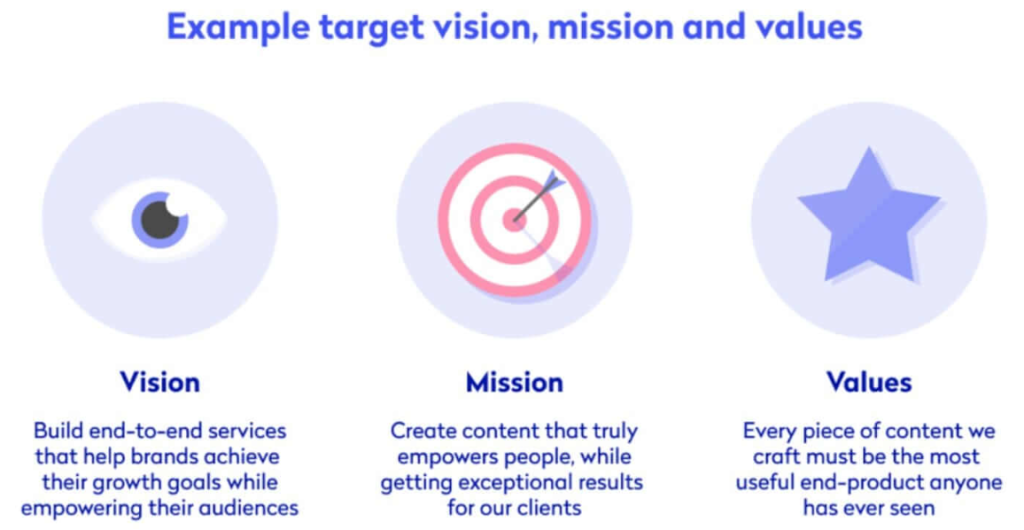
Plus, you’ll outline the products or services you offer and how they solve problems for Kenyan consumers.
Market Analysis:
Market Analysis dives deep into understanding the Kenyan market – who your competitors are, who your customers are, and where the opportunities lie.
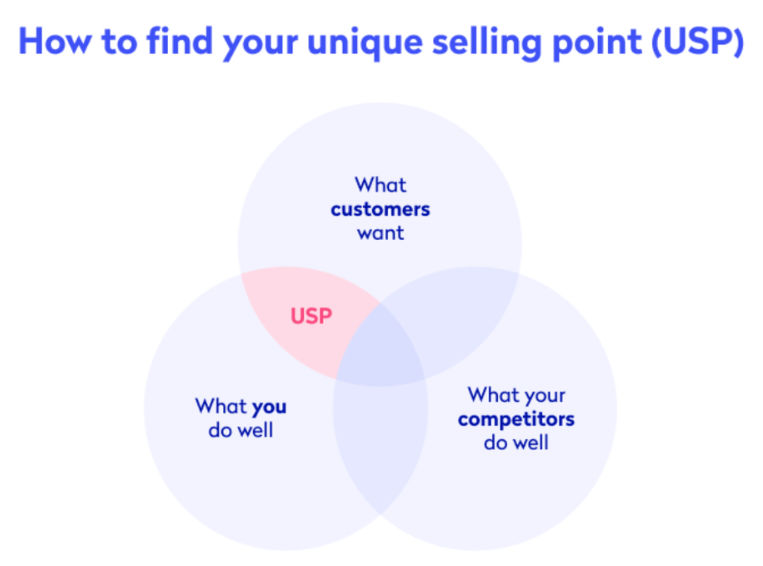
By detailing information about the themes and trends within your industry, you’ll be able to show that the appetite for your product or service exists.
Outlining information about your ideal customer helps you to identify the marketing and sales tactics you can use to attract them. And highlighting your competitor’s strengths and weaknesses gives you a chance to showcase what you do better than the rest.
- Customer Analysis
- The Problem Analysis and Solution
- Market Overview
- Market Size means the total number of potential customers using your product/service.
- Competitive Analysis
Products & Services:
Here’s where you showcase what you’re bringing to the table.
You can talk about the:
- Features of the product/service
- Comparison of the product/service with the competition
- Product photos
For the production process, include:
- Product/service implementation
- Production requirements
- Distribution and sales
For the lifecycle process, include:
- Product life
- Expansion opportunities
Marketing Plan:
The Marketing Plan outlines how you’ll reach and attract customers in Kenya. It’s all about tailored strategies – online, offline, or a mix of both – to capture the attention of Kenyan consumers and turn them into loyal customers.
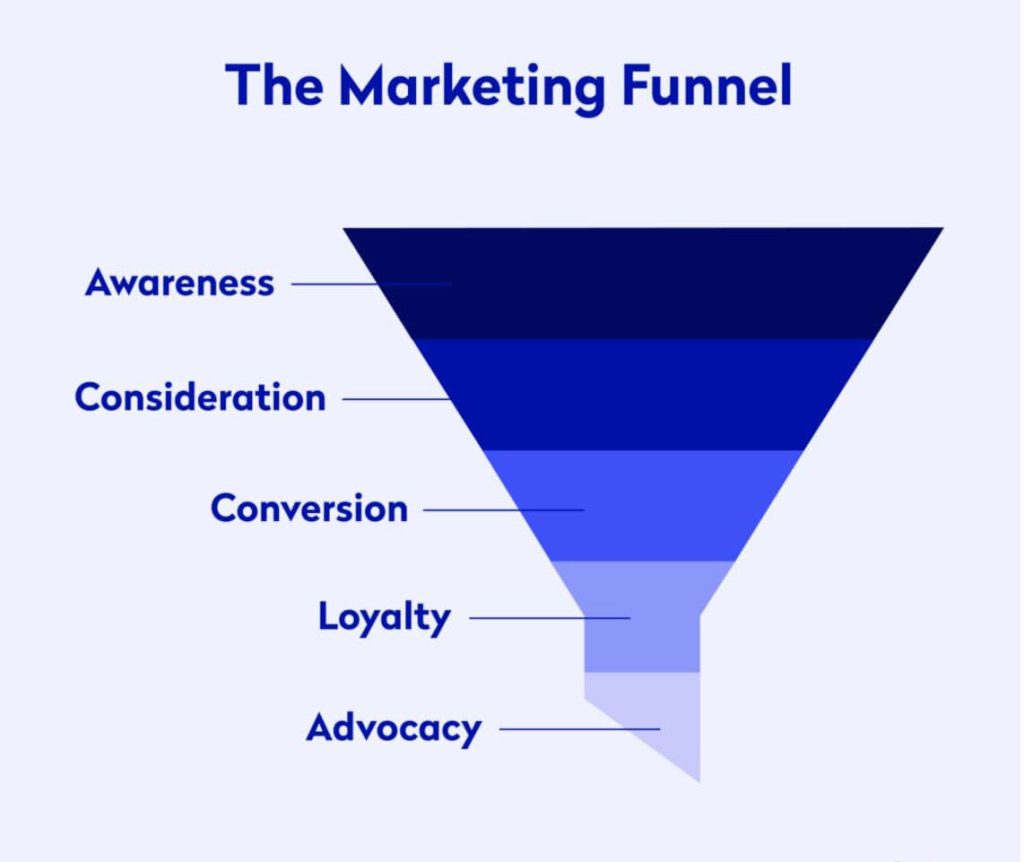
Here’s what your marketing plan should include:
- Your target market. Describe who your main customers are based on your research.
- Which marketing channels you’ll use and which you’ll prioritize. Explain where you’ll advertise, like on social media, through word of mouth, or with Google Ads.
- Your plan to attract customers at launch . Share how you’ll get customers’ attention when you first start, such as offering discounts for social media shares.
- Your plan to retain customers . Tell how you’ll make sure customers keep coming back, like giving them rewards for shopping with you.
- Your expected results . Talk about what you hope to achieve with your advertising, like more sales, and if you’ve already advertised, tell how it’s gone.
Management & Operations:
Meet the team! The Management & Operations section introduces the key players behind your business.
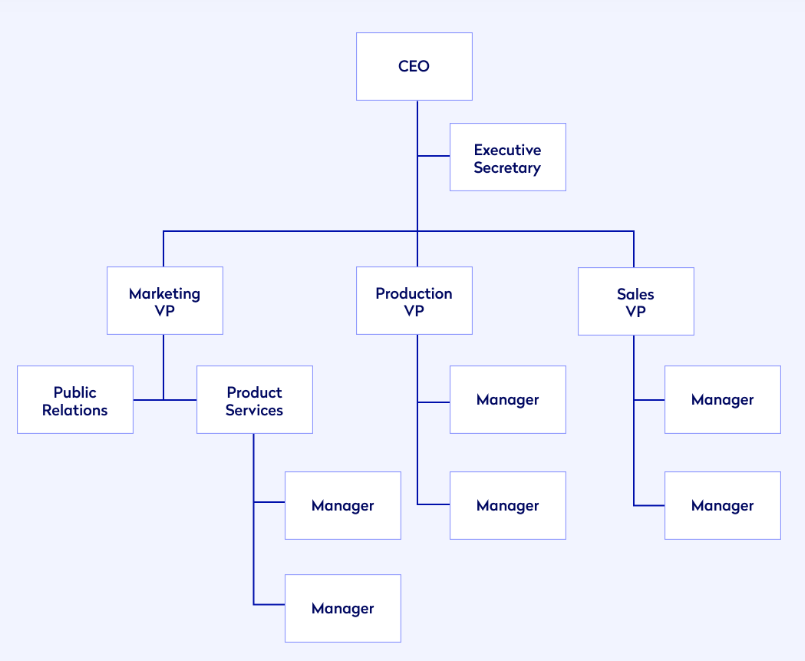
You’ll talk about who’s running the show, how things operate behind the scenes, and what resources you need to keep the business running smoothly in Kenya.
Here is a breakdown of what you need to include:
- Introduce your team members and their roles
- Showcase their expertise and qualifications
- Identify additional roles needed for company growth
- Budget for hiring experts like bookkeepers, CPAs, and attorneys
- Specify the role of CPAs in managing accounting and tax matters
- Outline the attorney’s role in legal affairs and dispute resolution
- Seek referrals for hiring experts and include associated fees
Financial Projections:
Last but not least, let’s talk money! The Financial Projections section crunches the numbers to predict how your business will perform financially in Kenya.
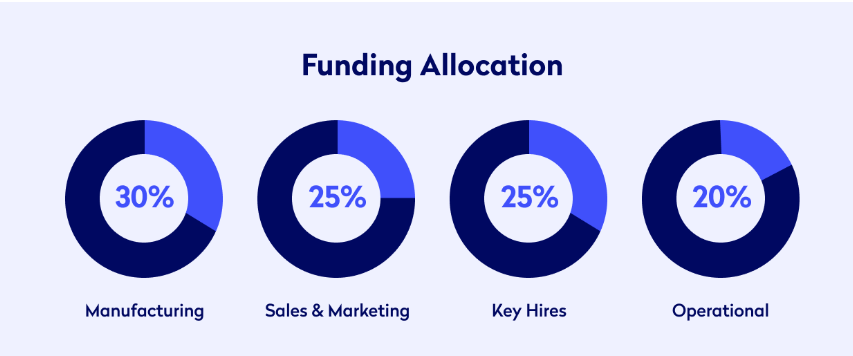
You’ll outline:
- Income statements
- Profits or Loss statements
- Revenue forecasts
- Cash flow analysis
All to show potential investors that your business plan in Kenya is a solid investment.
How Much Does it Cost to Write a Business Plan in Kenya?
The cost of drafting a business plan in Kenya varies between Ksh 10,000 to Ksh 30,000. The price is based on factors such as complexity, scope, and the expertise of professionals involved.
While engaging professional consultants or firms may entail higher costs, entrepreneurs in Kenya can explore cost-effective alternatives like templates or online resources tailored to their specific needs and financial constraints in Kenya.
How to write a compelling business plan in Kenya
- Keep it brief: A typical business plan can range from 10 to 20 pages. As long as you adequately cover the essentials, less is more.
- Make it easy to read: Divide your document into distinct sections, so that investors can quickly flip between key pieces of information.
- Know your margins: List every cost your business incurs, and make sure that you’re assigning those costs to each product or service that you sell.
- Proofread: Double-check for typos and grammatical errors. Then, triple-check. Otherwise, you might risk your credibility.
- Invest in quality design and printing: Proper layout, branding, and decent printing or bookbinding give your business plan a professional feel.
- Be prepared in advance: Have everything ready to go at least two weeks ahead so you have time to make revisions in case of a last-minute change.
Common Mistakes made when creating a business plan in Kenya?
- Lack of Clarity Failing to clearly articulate the business concept, goals, and strategies.
- Inadequate Market Research Not conducting thorough market research to understand the target market, competition, and industry trends.
- Unrealistic Financial Projections Overestimating revenues and underestimating expenses, leading to unrealistic financial projections.
- Poorly Defined Target Audience Failing to clearly define the target audience and address their specific needs and preferences.
- Weak Competitive Analysis Providing insufficient analysis of competitors and failing to differentiate the business from existing offerings.
- Lack of Risk Assessment Neglecting to identify and address potential risks and challenges that may impact the success of the business.
- Overlooking Operational Details Failing to include operational details such as staffing, logistics, and production processes.
- Inconsistent Formatting and Presentation Presenting the business plan in a disorganized or inconsistent manner, making it difficult to read and understand.
Can I Use ChatGPT to Write a Business Plan in Kenya?
Absolutely! ChatGPT can serve as a valuable aid in the business planning process for entrepreneurs in Kenya. While it cannot replace the insights provided by human consultants, ChatGPT can assist in brainstorming ideas, refining content, and structuring the business plan effectively within the Kenyan market context.
However, it’s essential to complement AI-generated content with human expertise and customization to ensure alignment with the unique requirements and nuances of the Kenyan business landscape.
FAQs about writing a business plan in Kenya
- Why is a business plan important for startups?
A business plan provides startups with a roadmap for success, helping to clarify objectives, identify potential challenges, and secure funding. It serves as a strategic tool for guiding growth and decision-making.
- What should I include in the executive summary of my business plan?
The executive summary should provide a concise overview of your business, including its mission, key objectives, target market, unique value proposition, and financial highlights. It’s essentially a snapshot of your entire business plan.
- How do I conduct market research for my business plan?
Market research involves gathering data on your target market, competitors, industry trends, and customer preferences. This can be done through surveys, interviews, focus groups, and analyzing industry reports and data.
- How do I project financials for my business plan?
Financial projections should include income statements, cash flow forecasts, and balance sheets. You’ll need to estimate revenues, expenses, and cash flow based on factors such as sales projections, pricing strategies, and operating costs.
- How do I determine the target market for my business?
Identifying your target market involves understanding the demographics, preferences, needs, and behaviors of potential customers. Conducting market research and analyzing data can help you define your target audience more effectively.
- What should I consider when writing the marketing plan section of my business plan?
The marketing plan should outline your strategies for promoting your products or services, reaching your target audience, and achieving your sales objectives. This may include digital marketing tactics, traditional advertising methods, and branding strategies.
- How do I address potential risks and challenges in my business plan?
It’s important to acknowledge potential risks and challenges in your business plan and outline strategies for mitigating them. This could include market fluctuations, competitive threats, regulatory changes, and operational risks.
- Do I need a business plan if I’m already in business?
Even if you’re already in business, a business plan can be valuable for setting new goals, exploring growth opportunities, and securing financing for expansion. It provides a strategic framework for driving your business forward.
- How long should a business plan be?
A business plan typically ranges from 15 to 25 pages, but concise plans as short as 10 pages can suffice, depending on the complexity of the venture and the audience. The key is to include essential sections such as an executive summary, market analysis, strategy, financial projections, and an appendix for supporting documents.
Final thoughts on Writing a Business Plan in Kenya
In conclusion, crafting a winning business plan in Kenya demands a strategic blend of foresight, market knowledge, and meticulous planning tailored to the distinctive characteristics of the Kenyan market. By adhering to the outlined components and leveraging appropriate resources, entrepreneurs can develop a robust business plan that not only charts a path to success but also instills confidence among investors, stakeholders, and customers alike within Kenya’s dynamic business environment.
With determination, adaptability, and a well-crafted plan finely tuned to the Kenyan context, the pursuit of entrepreneurial success in Kenya transitions from a mere aspiration to a tangible reality.

Written by Kigen
I have a Passion in Helping Kenyans Who Mean Business with Design & Marketing. Learn More About Me >>[HERE]
Subscribe to our FREE business tips newsletter
More than 150,000 like you receive weekly business wisdom. Don’t be left behind.
Keep Reading...
Check out these related articles

How to Find the Right Website Designer in Kenya

10 Best Ways to Promote Your New Business Website in Kenya

How Much Does A Website Cost in Kenya? (2024 Estimates)

How to Hire the Best Graphic Designer in Kenya
© CreativeKigen 2021 – Best Graphic Designer in Kenya | Privacy Policy | Facebook & Google Disclaimer Web Design in Kenya | Website Design in Kenya | Logo Design in Kenya
- Paragraph Generator
- Cover Letter
- Authorization Letter
- Application Letter
- Letter of Intent
- Letter of Recommendation
- Business Plan
- Incident Report
- Reference Letter
- Minutes of Meeting
- Letter of Resignation
- Excuse Letter
- Research Proposal
- Job Application
- Acknowledgement
- Employment Letter
- Promissory Note
- Business Proposal
- Statement of Purpose
- Offer Letter
- Deed of Sale
- Letter of Interest
- Power of Attorney
- Solicitation Letter
27+ SAMPLE Boutique Business Plan in PDF | MS Word Google | Docs | Apple Pages
Boutique business plan | ms word google | docs | apple pages, 27+ sample boutique business plan, what is a boutique business plan, elements of a boutique business plan, tips on boutique business plan, how to start a boutique business, how much capital is needed to start a boutique, what could be the best tip for a boutique store.
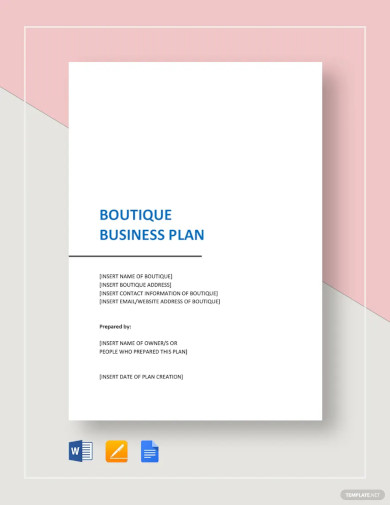
Boutique Business Plan Template
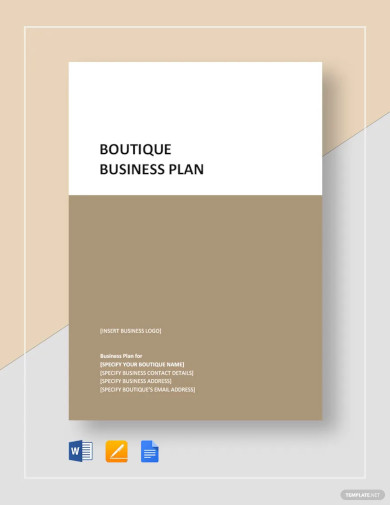
Sample Boutique Business Plan Template
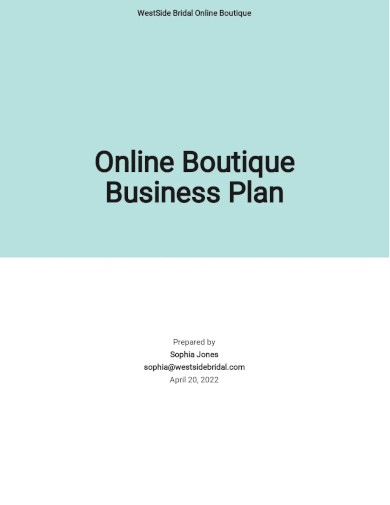
Online Boutique Business Plan Template

Women’s Clothing Boutique Business Plan Template
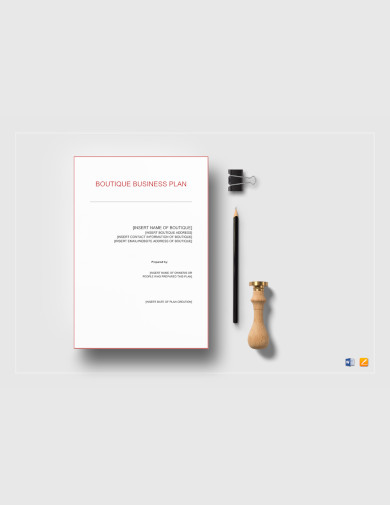
Basic Boutique Business Plan Template
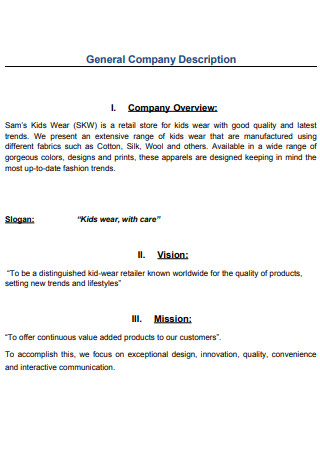

Boutique Business Plan Executive Summary
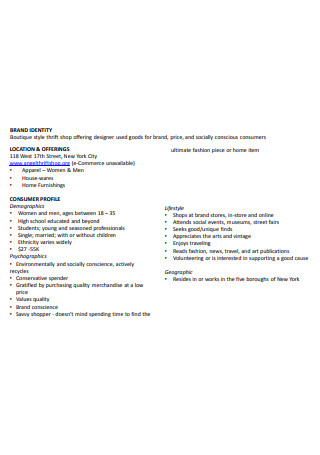
Online Boutique Business Plan
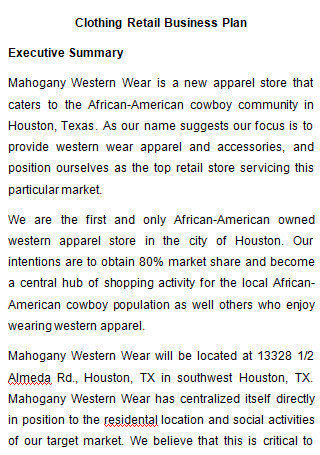
Clothing Retail Business Plan
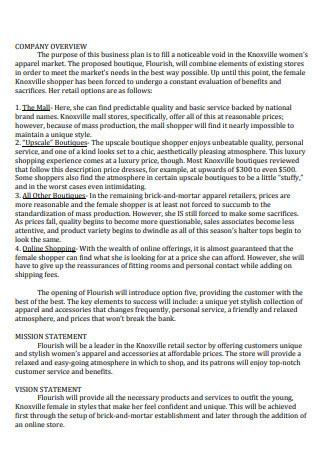
Boutique Business Plan Cover Page
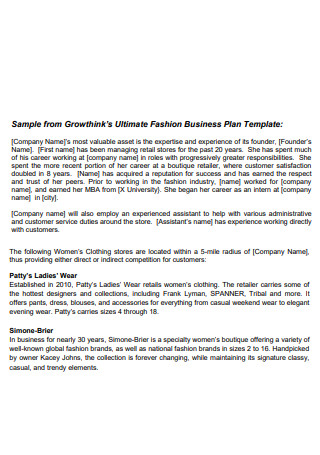
Fashion Boutique Business Plan

Privately Owned Boutique Operational Business Plan
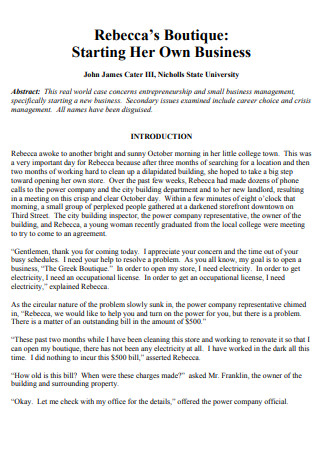
Sample Boutique Business Plan

Boutique Business Plan Company Description

Women Designers Wear Business Budget Plan
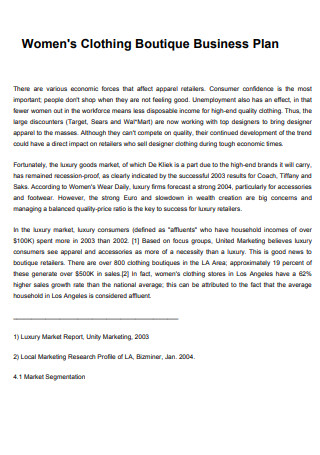
Womens Clothing Boutique Business Plan
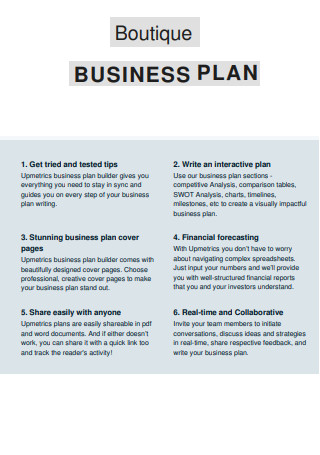
Boutique Business Plan Example
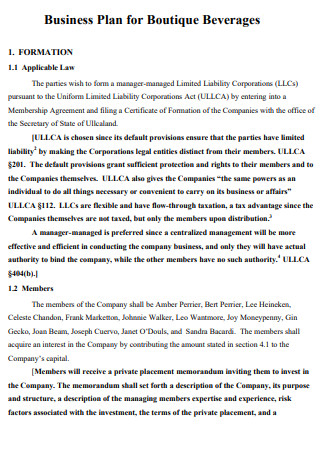
Boutique Beverage Business Plan
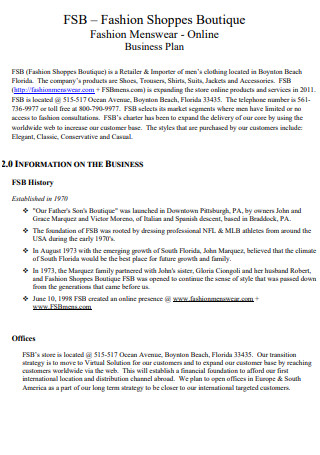
Fashion Men’s Wear Boutique Plan
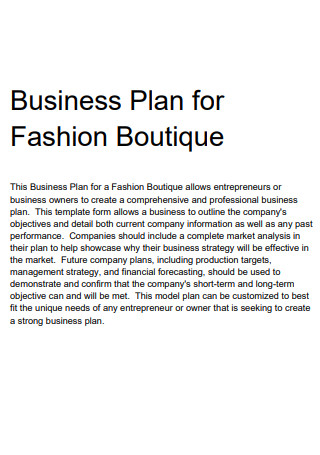
Sample Fashion Boutique Business Plan
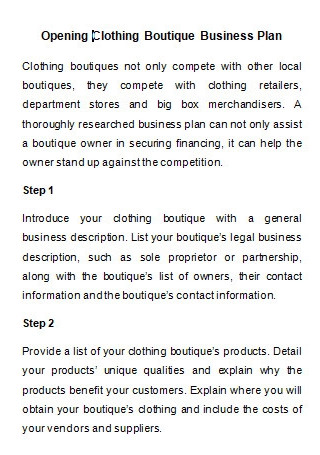
Opening a Boutique Business Plan
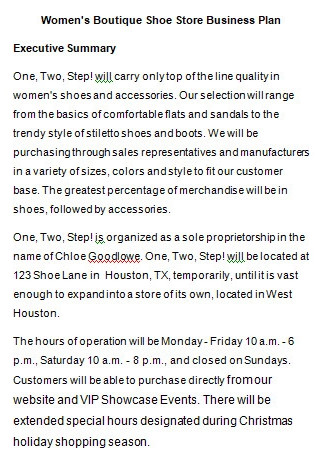
Women’s Boutique Shoe Store Business Plan
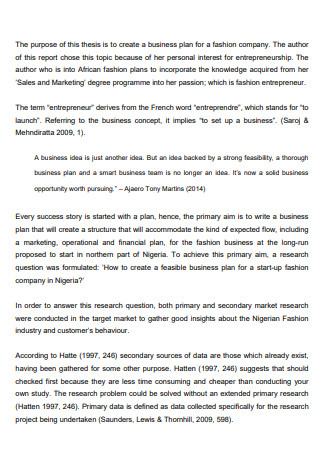
General Boutique Business Plan
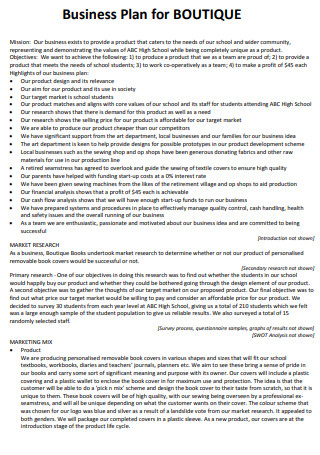
Student Boutique Business Plan
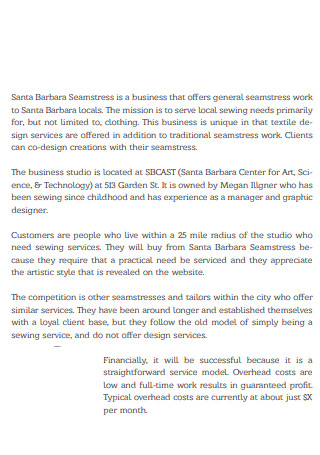
Standard Boutique Business Plan
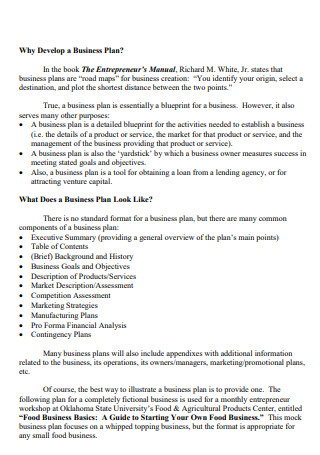
Food Boutique Business Plan
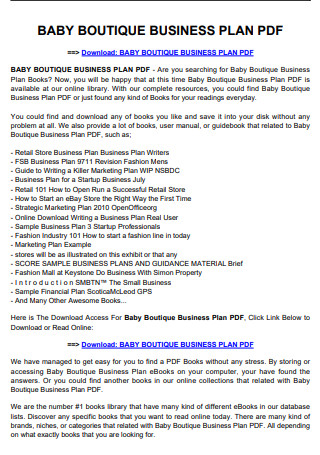
Baby Boutique Business Plan
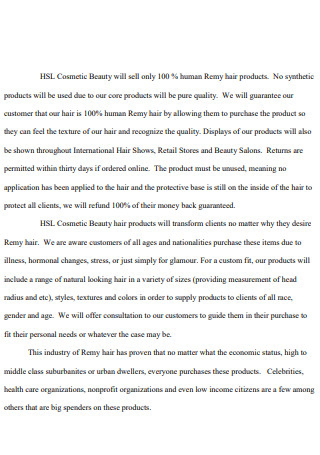
Boutique Business Plan in PDF
Executive summary, business description, mission statement, business concept, product line, competitor analysis, market analysis, clothing marketing plan, organization, costs and funding, step 1: type of boutique, step 2: choose products, step 3: funding your business, step 4: finish legalities, step 5: make a grand opening, share this post on your network, you may also like these articles, workout plan.
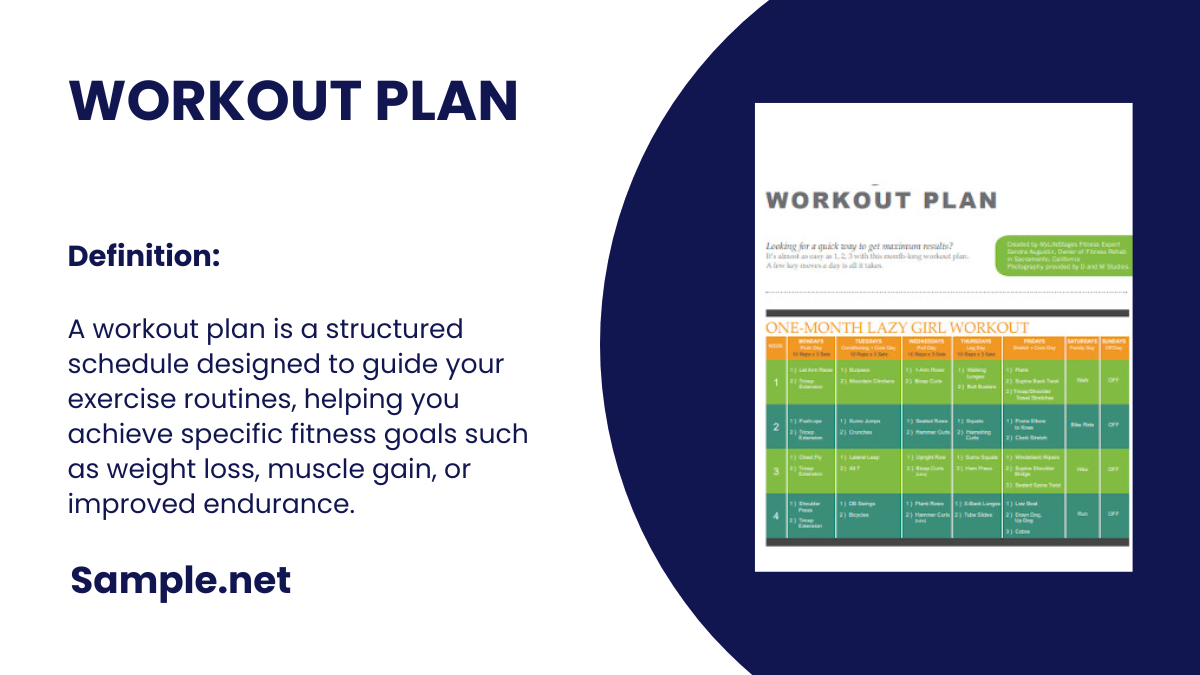
A workout plan is a structured schedule designed to guide your exercise routines, helping you achieve specific fitness goals such as weight loss, muscle gain, or improved endurance. It…
School Action Plan
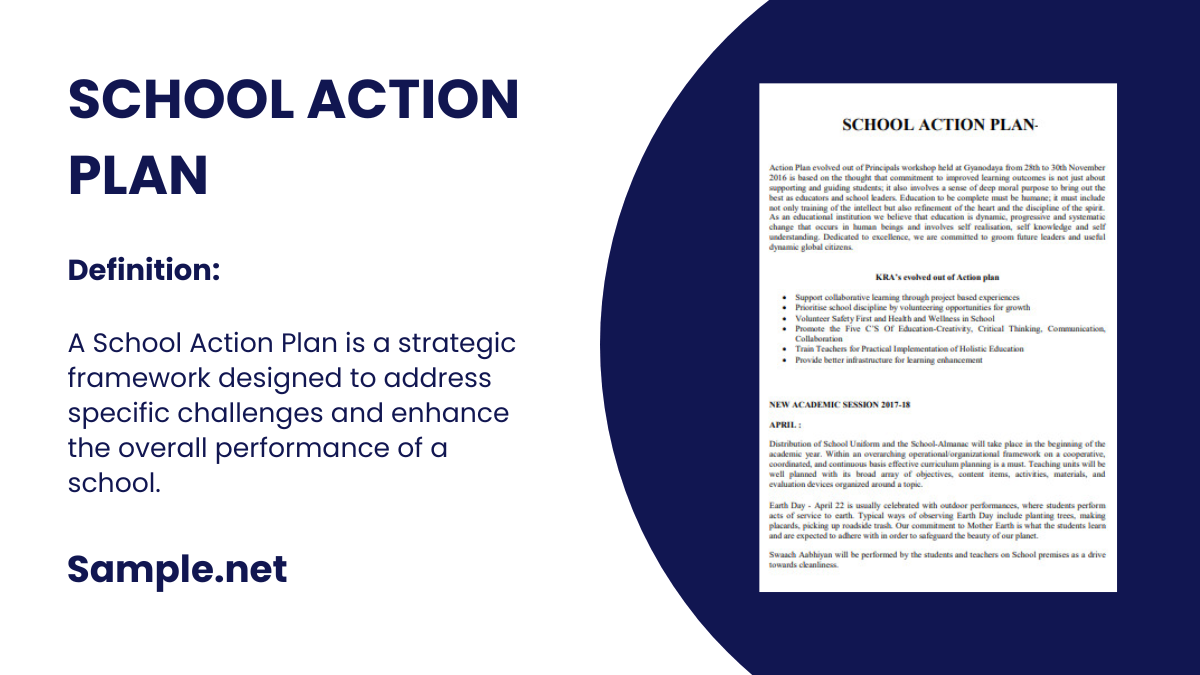
A School Action Plan is a strategic framework designed to address specific challenges and enhance the overall performance of a school. It outlines targeted objectives, measurable goals, timelines, and…
browse by categories
- Questionnaire
- Description
- Reconciliation
- Certificate
- Spreadsheet
Information
- privacy policy
- Terms & Conditions

How to Create a Winning Business Plan in Kenya
Are you looking to start a successful business in Kenya? Wondering how to create a winning business plan in Kenya that will help you succeed in the competitive Kenyan market?
Then you’ve come to the right place. In this blog post, we’ll guide you through the process of creating a winning business plan that will help you unlock your business success in Kenya.
From understanding the local market to setting realistic goals and creating a strategic plan, we’ll share all the essential tips and tricks you need to create a successful business plan. So let’s get started!
Definition of a Business Plan
This is a written document that describes in detail how a business, usually a new one, is going to achieve its goals by laying out a written plan from a marketing, financial, and operational viewpoint. The document describes the vision of the business, its objectives, strategies, target market and financial forecasts.
Benefits of Creating a Winning Business Plan in Kenya
Creating a winning business plan can have significant advantages for any business. From securing financing to helping identify potential opportunities, a well-crafted plan can help you reach your goals. Here are some of the top benefits of creating a winning business plan
1. Identification of Opportunities
A great business plan should provide a roadmap for success. It helps entrepreneurs identify potential opportunities and potential risks. With a comprehensive plan, you will be able to identify areas of growth, target markets, and potential partnerships. This allows you to take advantage of the best opportunities available to you.
2. Access to Financing
When you present a professional business plan to potential investors and financiers, they will be more inclined to provide funding. It is easier to trust a well-thought-out business plan than an idea scribbled on the back of a napkin. A strong plan will convince investors that you are taking the right steps to succeed.
3. Established Goals
Creating a plan forces you to consider all aspects of your business. By doing so, you will be able to set realistic goals for yourself and your team. This can be used for both short-term and long-term objectives.
4. Focused Strategy
Having a plan forces you to think through your strategy in detail. It allows you to develop focused plans for marketing, sales, and customer service. This will help you stay on track and make sure you aren’t wasting resources.
5. Increased Efficiency
When you have a plan, you can make more informed decisions about how to allocate resources. This can help you be more efficient with the resources you have and make sure that you are getting a good return on your investments.
Steps to Developing a Winning Business Plan in Kenya
A). identify your business goal.
When it comes to creating a successful business plan, the first step is identifying your business goals.
Having well-defined goals for your company is one of the keys to success in the Kenyan business environment. Knowing exactly what you want to achieve and how you aim to achieve it will help you create a clear vision for your business, while also providing a roadmap for your team to follow.
Without a clear vision and direction, it is easy to become lost in the sea of competing businesses or to spend too much time and effort on activities that do not lead to success.
By having a clear vision of what you want to achieve, you can also create a plan of action that will help you reach these goals. This is an important step in the business planning process, as it helps to create a timeline of goals and objectives that will guide your team and provide a timeline for review and evaluation.
Having a clear business plan also serves as a great source of motivation and inspiration for your team. Knowing what needs to be done, and when, will help to keep your team focused on the tasks at hand and ensure that the business stays on track.
Additionally, having a clear business plan can also help to attract potential investors and partners, as it gives them an insight into the vision and direction of your company.
b). Conduct Market Research
Conducting market research is an essential step in developing a successful business plan in Kenya. With a population of more than 48 million, it’s important to understand the Kenyan market and identify any opportunities or barriers to success.
Market research helps entrepreneurs to develop an understanding of the needs and wants of their target market and can help them to identify potential competitors and craft a successful plan to enter the market.
Kenya has a booming economy, and it’s an attractive market for entrepreneurs looking to start a business. Businesses need to understand the Kenyan market and its dynamics to ensure success. Conducting market research is an important step in developing a winning business plan in Kenya.
Conducting market research allows entrepreneurs to identify and understand their target market and the competition. Entrepreneurs should take the time to identify their target market’s needs and wants , as well as their potential competitors.
Market research helps entrepreneurs understand their target market’s buying habits and how they perceive the product or service they are offering. It also provides insight into the competitive environment and helps entrepreneurs to decide how to differentiate their product or service from the competitors.
Market research also helps entrepreneurs to identify potential opportunities and barriers to success. Kenya’s economy is growing and there are numerous opportunities for entrepreneurs to enter the market.
However, there are also various barriers to success such as lack of access to credit, availability of resources, and the cost of doing business. Conducting market research can help entrepreneurs to identify potential opportunities and barriers to success.
Conducting market research is an integral part of developing a successful business plan in Kenya. It helps entrepreneurs to understand the needs and wants of their target market, identify potential competitors, and understand the competitive environment. It also identifies potential opportunities and barriers to success, allowing entrepreneurs to develop a successful plan.
c). Analyze Business Opportunities
Analyzing Business Opportunities is a vital step in developing a winning business plan in Kenya. The country is home to a diverse population, rich natural resources, and an ever-growing economy. It is one of the fastest-growing economies in the world and is one of the most attractive destinations for foreign investors.
As such, it is important to have an in-depth understanding of the local economic environment and the opportunities it presents for businesses. Analyzing business opportunities involves a thorough analysis of the current market conditions, the competitive landscape, the potential for growth, and the potential risks associated with the venture. It also involves a careful assessment of the current trends in the industry and the potential for future growth.
An analysis of business opportunities helps entrepreneurs to identify potential opportunities that they can pursue. This is especially important for those who are new to the market or are exploring opportunities in a new sector. It allows them to gain insight into the current trends and helps them to create a plan that is tailored to the specific needs of the market.
In addition, analyzing business opportunities helps entrepreneurs to understand the key factors that influence the success of their ventures. These include the target market, the potential competition, and the regulatory environment. By understanding these factors, entrepreneurs are better able to plan their strategies, determine the necessary resources, and make informed decisions.
Moreover, analyzing business opportunities helps entrepreneurs to develop a clear and concise business plan. This helps to ensure that their plan is realistic and achievable. Furthermore, it also allows entrepreneurs to identify areas where they may need to make adjustments to ensure the success of their venture.
Analyzing business opportunities is also crucial for entrepreneurs to understand the various legal and financial implications of their venture. By understanding the legal framework and the financial implications of the venture, entrepreneurs are better able to make informed decisions and reduce the risk of failure.
d). Create a Business Model
Creating a business model is an essential part of developing a winning business plan in Kenya. In an increasingly competitive business landscape, entrepreneurs need to stand out and differentiate themselves from the competition. A well-crafted business model is an effective way to do this.
A business model is a description of how a company will make money. It identifies the product or service, the target customer, and the revenue model. A successful business model will provide a clear path to profitability, and it should be tailored to the specific needs of the company.
When creating a business model for a business plan in Kenya, entrepreneurs must consider the unique market conditions in the country. The Kenyan business environment is highly competitive and diverse. There are a number of factors that can influence the success of a business, such as the availability of resources, the size and composition of the customer base, and the competition.
Business models should be designed to address the needs of the target customer, while also taking into account the various conditions of the market.
For instance, entrepreneurs should consider the type of technology they will use to deliver their product or service, the cost of the product, and the customer service they will provide. Additionally, the model should include an analysis of the competitive landscape to determine how the company can differentiate itself.
Creating a business model involves research, analysis, and creativity. The model should be tailored to the specific needs of the company, while also considering the overall market conditions in Kenya. When developing a business model, entrepreneurs should consider the costs, the potential revenue stream, and the potential risks associated with their business plan.
Creating a business model is a critical step in developing a winning business plan in Kenya. A well-crafted model can provide a clear path to profitability, and it can help entrepreneurs stand out from the competition.
Entrepreneurs should take the time to research, analyze, and create a model that is tailored to their specific needs. By doing so, entrepreneurs will be well-positioned to succeed in the Kenyan business landscape.
e). Develop Your Financial Plan
Developing a winning business plan in Kenya requires more than just a good idea and a lot of hard work. It requires financial planning, which is the process of creating a realistic and achievable plan for how you will finance the business in order to ensure its success.
Developing your financial plan is a critical step in developing a winning business plan in Kenya, as it ensures that your business has the financial resources it needs to operate and grow.
Financial planning is important for any business, but developing a financial plan is essential in Kenya, where economic instability and limited access to capital make it difficult to secure funding.
A financial plan allows you to make informed decisions about how to finance your business, by taking into account both long-term and short-term goals. It also helps you create a realistic budget and forecast for the future.
When developing your financial plan, you will need to consider a number of factors, such as how you plan to finance the business, what types of investments you will need to make, and what risks you are willing to take. Additionally, you will need to consider the legal and regulatory requirements for operating a business in Kenya and the tax implications of any investments you make.
Creating a financial plan can be a daunting task, but it’s critical for the success of your business. To begin, it’s important to understand the basics of financial planning and make sure you understand the different types of investments available.
Once you have a general understanding of the financial landscape, you can use tools like cash flow diagrams, balance sheets and financial statements to help you come up with a plan that works for your business.
Once you have a plan in place, it’s important to review it periodically to make sure it continues to meet your needs. This will help you stay ahead of the curve and ensure that your business is well-positioned for success. Additionally, it’s important to keep an eye on changes in the financial landscape and adjust your plan as necessary.
Developing a financial plan is an essential step in developing a winning business plan in Kenya. Without a financial plan, you risk investing too much or too little in the wrong areas, or not having enough funds to cover unexpected expenses.
A well-thought-out financial plan will also help you manage your risks and ensure that you are able to capitalize on any opportunities that may present themselves.
By taking the time to develop your financial plan, you can ensure that you have the resources you need to achieve your business goals and create a successful business in Kenya.
f).Write Your Business Plan
Writing a business plan is an important step in the process of launching and running a successful business. It’s a document that outlines the goals, objectives, and strategies of your business. It’s also the document you’ll use to communicate your plan to potential investors, lenders, and other stakeholders.
How To Create A Business Plan
Creating a business plan is a complex process and involves several steps. Here are the key steps you should follow when writing your business plan:
1. Conduct a Market Analysis
The first step in writing your business plan is to conduct market research. This will involve researching the industry, your competitors, and potential customers. It’s important to get a good understanding of the market and identify potential opportunities and threats.
2. Set Objectives and Goals
Once you’ve conducted a market analysis, you’ll need to set objectives and goals for your business. These should be realistic, measurable, and achievable. They should also be aligned with your overall vision and strategy.
3. Write an Executive Summary
The executive summary is a brief overview of your business plan. It should include the purpose of the plan, the goals and objectives, the market analysis, and the strategy.
4. Describe Your Products and Services
This section will provide an in-depth description of the products and services you offer. You should also include pricing and payment terms, as well as any competitive advantages you may have.
5. Create a Financial Plan
The financial plan should include a sales forecast, a balance sheet, and a cash flow statement. These will help you project the financial performance of your business.
6. Create an Operations Plan
The operations plan will include information about the management team and staffing, as well as the operational processes you’ll use.
7. Develop a Marketing Plan
The marketing plan should detail your marketing strategy, including the target markets, positioning, and promotional activities.
8. Finalize and Publish the Plan
Once you’ve finished writing the business plan, you’ll want to review it carefully. You should also have it professionally edited and proofread. Once you’ve done that, you can publish the plan and begin using it as a guide for your business.
Writing a business plan can seem like a daunting task, but it’s an essential part of running a successful business.
By following the steps outlined in this article, you’ll be well on your way to creating a comprehensive business plan that will help you launch and grow your business.
Tactics for a Successful Business Plan in Kenya
A). utilize resources available in kenya.
Every successful business plan is built on a foundation of maximizing available resources. In order to maximize these resources, businesses must be aware of and utilize the resources available in Kenya.
From the rich culture and history to the abundant natural resources, there are a multitude of resources in Kenya that entrepreneurs can take advantage of to help build a successful business plan.
Utilizing the natural resources in the country can be a great way to create a successful business plan and gain an edge over competitors.
By understanding the background and culture of the country, entrepreneurs can better tailor their business plans to the needs of the Kenyan market.
Taking advantage of the growing Kenyan market can be a great way to create a successful business plan and make sure that it reaches the intended audience.
b). Monitor Your Progress Regularly
When it comes to planning for a successful business, monitoring progress is an essential tactic. Whether you’re just getting started in the business world, or you’re an experienced entrepreneur looking to expand, understanding how to come up with a business plan and monitoring your progress is key to success.
Monitoring your progress not only helps you track your progress over time, but also allows you to make necessary changes as needed. Knowing where you’re making progress and where you’re falling short can help you stay ahead of the competition and make sure you’re on track to reach your goals.
Some key areas you should focus on when monitoring progress include sales, customer service, marketing, and financials. By tracking these areas, you can identify what areas you need to focus on and make improvements. Keeping track of these and other areas can help you stay on top of your goals and keep your business on track.
c). Leverage Technology
Having a solid business plan is the foundation of any successful business. The strategic roadmap outlines the steps and activities necessary to achieve the desired results. It is essential to have a well thought out business plan that covers all aspects of the venture, from the financials to the operational goals.
In the current digital age, leveraging technology is a must for any business plan.
Technology has the power to transform a business from one that is merely surviving to one that is thriving. Technology provides the tools to increase efficiency, reduce costs, and boost sales.
The first step in leveraging technology for a successful business plan is to determine the technology needs of the business. Consider what tools, applications, and systems your business needs to achieve its goals.
Technology can be used to streamline processes, improve customer service, increase productivity, and enhance the customer experience. Once the technology needs are identified, the next step is to identify key partners and vendors who can provide the necessary technology solutions.
Technology can help organizations to offer better customer service, increase customer satisfaction, and create opportunities for upselling. It can also be used to create an interactive, data-driven customer experience.
d). Take Calculated Risks
Having a well-thought-out business plan is essential when starting a business. It outlines the objectives, strategies and tactics needed to achieve success. A business plan also helps identify potential risks and prepare for the future.
Taking calculated risks is an important element of a successful business plan. It involves taking risks that have a good chance for success, while avoiding those that could lead to failure. Calculated risks can open the door to new opportunities, help differentiate a business from its competitors, and increase profits.
Before taking any risk, it’s important to do some research. Researching industry trends, competitor strategies, and customer needs can help inform risk-taking decisions. You don’t want to make a risky move that could negatively impact your company.
For any aspiring Kenyan entrepreneur, coming up with a business plan is the first step in creating a successful venture.
It will not only help you visualize and plan your ideas, but it will also provide you with the necessary information to make sound decisions about the direction of your business. A well-thought-out business plan will give you a competitive edge in the market.
The final tips for unlocking your business success may be the most important steps to take before embarking on your journey.
Creating a business plan in Kenya, researching, networking, implementing the plan, and learning from mistakes are all essential steps to take before starting a business.
For entrepreneurs in Kenya, a business plan is essential for success.
A detailed business plan will help entrepreneurs stay organized, plan for the future, and secure access to capital and resources. With these tips, you will be well on your way to unlocking success in Kenya.
Related: 15 Most Profitable Businesses To Start With 50K in Kenya
Similar Posts

How to Register a Business in Kenya
name of a business
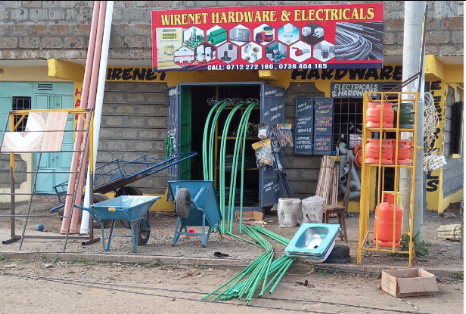
How To Start A Hardware Business In Nairobi Kenya
Are you looking for a guide on how to start a hardware business in Nairobi Kenya? We will help you have a better understanding and courage to get started by the end of this article. A hardware business that is well-managed has the potential to generate significant profits. Establishing a prosperous hardware business in Kenya…

How To Start An Atm Milk Business In Kenya
The ATM Milk Business in Kenya, is a lucrative venture that can churn out substantial returns. Offering fresh milk through automated dispensers, this innovative concept has captured the attention of consumers and entrepreneurs alike. Here’s your guide to navigating the Milky Way and mastering the art of running a successful milk ATM business. Find a…

How To Succeed In Business In Kenya
business man communicating with a customer

How To Start A Cosmetics Business In Nairobi
Are you looking for information on starting a cosmetics business in Nairobi? Relax; you are on the right page. Starting a cosmetics business in Kenya can be a lucrative opportunity. The beauty industry is experiencing a surge in product demand, and you can leverage this to earn substantial profits. As more individuals prioritize self-care, products…
No. 1 Guide to Starting a Successful Business with 10k in Kenya
Starting a successful business with just 10,000 KES in capital may seem daunting, but it is very possible with the right strategy and execution. With creativity and dedication, this modest investment can be turned into a profitable enterprise. This article provides an in-depth guide on how to start the best business with 10k in Kenya…
Leave a Reply Cancel reply
Your email address will not be published. Required fields are marked *
Save my name, email, and website in this browser for the next time I comment.

- Women Clothings
- Custom-made Dresses
- Women Trousers
- Jumpers & Hoodies
- T-shirts & Polos
- Women Shorts
- Recommended Products Top Deals
- Women Accessories
- Women Belts
- Berets & Caps
- Bracelets & Bangles
- Men's Clothing
- Customized African Wears
- Men's Suits
- T-Shirts & Polos
- Sport's Wear & Shorts
- Men's Jeans
- Boxers & Underwears
- Women Fashion recommended
- Bags & Luggage
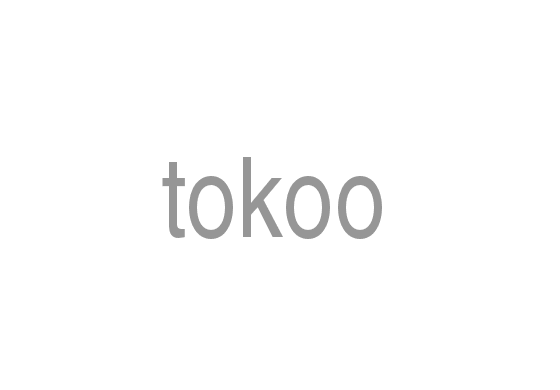
- Search Search for:
Is Boutique Business Profitable in Kenya?
Boutique business can be profitable in Kenya, especially if it offers unique, high-quality products that are in demand. The country’s growing middle class, coupled with a strong focus on fashion and an increasing interest in unique, locally-made products, make it a potentially lucrative market for boutique businesses.
Key Factors Affecting Profitability of Boutique Business in Kenya
1) location.
One key factor in the success of a boutique business in Kenya is location. Setting up shop in a busy, high-traffic area with a lot of foot traffic can help attract potential customers. This could be in a shopping mall, a busy street, or even in a high-end residential area.
2) Products’ Quality
Another important factor is the quality of the products being sold. In a market where competition is fierce, offering unique, high-quality products can help a boutique business stand out and attract loyal customers. This could include items such as clothing, accessories, or home décor items that are made using traditional techniques or materials.
3) Customization
Another potential source of income for boutique businesses in Kenya is custom orders. Many customers may be interested in having items made specifically for them, such as clothing or accessories. This can be a lucrative source of income, especially if the boutique is able to offer high-quality, personalized products at a reasonable price.
4) Online Presence
In order to be successful, boutique businesses in Kenya will also need to have a strong online presence. This could include having a well-designed website and active social media accounts, as well as engaging with customers and responding to their inquiries and feedback. This can help to build a positive reputation and attract more customers.
Where to Buy Boutique Products in Kenya to Start the Business
There are several options for buying boutique products in Kenya to start a business, including:
- Wholesale markets: There are several wholesale markets in Kenya where you can purchase a variety of products for your boutique business, including clothing, accessories, home decor, and more. Some popular wholesale markets in Kenya include Gikomba Market in Nairobi, Makongeni Market in Thika, and Muthurwa Market in Nairobi.
- Online marketplaces: There are several online marketplaces in Kenya where you can purchase boutique products, including Kenyan Boutique Jumia, Kilimall, Aliexpress and Masoko. These platforms offer a wide range of products from various sellers and can be a convenient option for purchasing boutique products.
- Importing: You can also consider importing boutique products from other countries to sell in your boutique business. This can be a good option if you are looking for unique or specialty products that are not widely available in Kenya. You can import products directly from manufacturers or wholesalers or use a local importer or distributor to facilitate the process.
- Local suppliers: There are also many local suppliers and manufacturers in Kenya that produce boutique products, including clothing, accessories, and home decor. You can contact these suppliers directly to purchase products for your boutique business.
It is important to do your research and shop around to find the best products at the most competitive prices for your boutique business. You may also want to consider factors such as quality, durability, and demand for the products you are considering purchasing.
How Much You Need to Start a Boutique Business in Kenya
The amount of money needed to start a boutique business in Kenya can vary depending on several factors, including the size and location of the boutique, the products or services offered, and the operating costs. Here are some of the key costs to consider when starting a boutique business in Kenya:
- Rent: Rent can be a significant cost for a boutique business, especially if you are planning to locate the business in a high-traffic area or popular shopping district.
- Inventory: You will need to purchase inventory to sell in your boutique. The cost of inventory will depend on the type and quantity of products you are planning to sell.
- Equipment and furnishings: You may need to purchase equipment and furnishings for your boutique, such as shelving, displays, and fixtures.
- Marketing and advertising: You will need to invest in marketing and advertising to promote your boutique and attract customers. This can include costs for social media marketing, advertising in local publications, and other marketing efforts.
- Operating expenses: You will also need to budget for ongoing operating expenses, such as utilities, payroll, and other expenses.
It is difficult to provide a specific or average figure for the amount of money needed to start a boutique business in Kenya, as the costs will depend on the specific needs and circumstances of your business. However, an average boutique business will require you to have atleast Kshs 50,000 to Kshs 200,000 to ensure that you have a proper ground to start your business.
It is important to carefully assess your budget and financial needs and develop a business plan to guide your decision-making and allocate resources appropriately. You may also want to consider seeking funding through loans, grants, or investment to help finance your boutique business.
Bottom Line
Overall, a boutique business can be profitable in Kenya if it offers unique, high-quality products, is located in a prime location, and has a strong online presence. With the right strategies and efforts, a boutique business can thrive in this market and provide a good source of income for its owners.
I find the report helpful .on how to start a boutique in Kenya. Thank you
Your email address will not be published. Required fields are marked *
Save my name, email, and website in this browser for the next time I comment.
Yes, add me to your mailing list
Related Articles
Why are nike air forces so popular, are air force ones good for running, are clothes cheap in turkey.
- Sample Business Plans
- Retail, Consumers & E-commerce
Boutique Business Plan

For novice and experienced business owners, opening a boutique may be an incredibly lucrative endeavor.
Yet, clothing boutiques face competition from big box retailers, department stores, and other national chains. A carefully thought-out business plan can help a boutique owner not only get funding but also compete with the competition.
Are you looking to start writing a business plan for your boutique business? Creating a business plan is essential to starting, growing, and securing funding for your business. We have prepared a boutique business plan template for you to help in start writing yours.

Free Business Plan Template
Download our free boutique business plan template now and pave the way to success. Let’s turn your vision into an actionable strategy!
- Fill in the blanks – Outline
- Financial Tables
How to Write a Boutique Business Plan?
Writing a boutique business plan is a crucial step toward the success of your business. Here are the key steps to consider when writing a business plan:
1. Executive Summary
An executive summary is the first section of the business plan intended to provide an overview of the whole business plan. Generally, it is written after the entire business plan is ready. Here are some components to add to your summary:
- Start with a brief introduction: Start your executive summary by introducing your idea behind starting a boutique business and explaining what it does. Give a brief overview of the idea of how your boutique will be different.
- Market opportunity: Describe the target market in brief, and explain the demographics, geographic location, and psychographic attributes of your customer. Explain how your boutique business meets its needs. Clearly describe the market that your boutique will serve.
- Mention your products: Describe in detail the clothing, jewelry, cosmetics, and accessories that your boutique will sell.
- Management team: Name all the key members of your management team with their duties, responsibilities, and qualifications
- Financial highlights: Provide a summary of your financial projections for the company’s initial years of operation. Include any capital or investment requirements, startup costs, projected revenues, and profits.
- Call to action: After giving a brief about your business plan, end your summary with a call to action, for example; inviting potential investors or readers to the next meeting if they are interested in your business.
Ensure you keep your executive summary concise and clear, use simple language, and avoid jargon.
Say goodbye to boring templates
Build your business plan faster and easier with AI
Plans starting from $7/month

2. Business Overview
Depending on what details of your business are important, you’ll need different elements in your business overview. Still, there are some foundational elements like business name, legal structure, location, history, and mission statement that every business overview should include:
- The name of the boutique and the concept behind it like – a jewelry boutique, cosmetic boutique, a boutique of hand-made products, clothing boutique, or something else.
- Company structure of your boutique whether it is a sole proprietorship, LLC, partnership firm, or others.
- Location of your boutique and the reason why you selected that place.
- Mission statement: Add a mission statement that sums up the objectives and core principles of your boutique. This statement needs to be memorable, clear, and brief.
- Business history: Include an outline of the boutique’s history and how it came to be in its current position. If you can, add some personality and intriguing details, especially if you got any achievements or recognitions till now for your incredible services.
- Future goals: It’s crucial to convey your aspirations and your vision. Include the vision of where you see your business in the near future and if you have any plans of opening a new franchise of your business in the same city in the future.
This section should provide an in-depth understanding of your boutique. Also, the business overview section should be engaging and precise.
3. Market Analysis
Market analysis provides a clear understanding of the market in which your boutique business will run along with the target market, competitors, and growth opportunities. Your market analysis should contain the following essential components:
- Target market: Identify your target market and define your ideal customer. Know more about your customers and which products they prefer: accessories, clothes, jewelry, or hand-picked items.
- Market size and growth potential: Provide an overview of the boutique industry. It will include market size, trends, growth potential, and regulatory considerations. Highlight the competitive edge and how your boutique is different from the rest of the boutiques.
- Competitive analysis: Conduct a competitor analysis in the business plan by identifying and examining all local boutiques, including both direct and indirect competitors. Assess their strengths and weaknesses, and demonstrate how your boutique can provide exceptional qualitative services.
- Market trends: Analyze current and emerging trends in your industry, such as changes in customer preference or fashion. Explain how your business will cope with all the trends.
Some additional tips for writing the market analysis section of your business plan:
- Use a variety of sources to gather data, including industry reports, market research studies, and surveys.
- Be specific and provide detailed information wherever possible.
- Include charts and graphs to help illustrate your key points.
- Keep your target audience in mind while writing the business plan
4. Products And Services
The product and services section of a boutique business plan should describe the specific services and products that will be offered to customers. To write this section should include the following:
- Create a list of the products that your boutique will sell, which may include t-shirts, tops, jeans, pants, handbags, sweaters, trousers, and other things.
- Describe each product in detail with the description of the material, the procedure behind the product, and the specialty of that product.
- Inventory management: Explain your product procurement strategy. Provide information about any contracts or alliances you have with suppliers, as well as any tools or systems you’ll use to track inventory levels and sales numbers.
Overall, a business plan’s product and services section should be detailed, informative, and customer-focused. By providing a clear and compelling description of your offerings, you can help potential investors and readers understand the value of your business.
5. Sales And Marketing Strategies
Writing the sales and marketing strategies section means a list of strategies you will use to attract and retain your clients. Here are some key elements to include in your sales & marketing plan:
- Develop your unique selling proposition (USP): Explain your store’s competitive advantage or unique selling proposition. What distinguishes your goods and services from those of your competitors? These can include more personalized shopping experiences or better quality or design.
- Determine your pricing strategy: Develop a pricing strategy that is competitive and affordable, yet profitable. Consider offering promotions, discounts, or packages for your boutique to attract new customers.
- Marketing strategies: Develop a marketing strategy that includes a mix of online and offline marketing tactics. Consider social media, email marketing, content marketing, brochures, print marketing, and events.
- Sales strategies: Mention your sales strategy as in – partner with other local businesses and cross-sell. Consider offering incentives for referrals or special discounts for partnerships.
- Customer retention: Describe how your boutique will retain customers and build loyalty, such as through loyalty programs, special events, or personalized service.
Overall, the sales and marketing strategies section of your business plan should outline your plans to attract and retain customers and generate revenue. Be specific, realistic, and data-driven in your approach, and be prepared to adjust your strategies based on feedback and results.
6. Operations Plan
When writing the operations plan section, it’s important to consider the various aspects of your business processes and procedures involved in operating a business. Here are the components to include in an operations plan:
- Hiring plan: Tell the staffing requirements of your boutique, including the number of employees needed, their qualifications, and the duties they will perform. Also mention the perks you will provide to your employees.
- Operational process: Outline the processes and procedures that you will use to run your boutique. It includes the scheduling of appointments for any special customers, making personalized orders, and ordering raw materials.
- Facilities: Mention all the facilities you will require to operate. It might include details about the design of the store, the available storage, and the inventory control methods.
By including these key elements in your operations plan section, you can create a comprehensive plan that outlines how you will run your boutique business.
7. Management Team
The management team section provides an overview of the individuals responsible for running the boutique. This section should provide a detailed description of the experience and qualifications of each manager, as well as their responsibilities and roles.
- Key managers: Describe the key members of your management team, their roles, and their responsibilities. It should include the owners, senior management, and any other designer with their qualifications and roles.
- Organizational structure: Describe the organizational structure of the management team, including reporting lines and how decisions will be made.
- Compensation plan: Describe your compensation plan for the management team and staff, including salaries, bonuses, and other benefits.
- Board of advisors: If you have a board of advisors for your business, then mention them along with their roles and experience.
Describe the key personnel of your company and highlight why your business has the fittest team.
8. Financial Plan
When writing the financial plan section of a business plan, it’s important to provide a comprehensive overview of your financial projections for the first few years of your business.
- Profit & loss statement: Create a projected profit & loss statement that describes the expected revenue, cost of products sold, and operational costs. Your boutique’s anticipated net profit or loss should be computed and included.
- Cash flow statement: Estimate your cash inflows and outflows for the first few years of operation. It should include cash receipts from clients, payments to vendors, loan payments, and any other cash inflows and outflows.
- Balance sheet: Prepare a projected balance sheet, which shows the boutique’s assets, liabilities, and equity.
- Break-even point: Determine the point at which your boutique will break even, or generate enough revenue to cover its operating costs. This will help you understand how much revenue you need to generate to make a profit.
- Financing needs: Estimate how much financing you will need to start and operate your boutique business. It should include both short-term and long-term financing needs, such as loans or investment capital.
Remember to be realistic with your financial projections, and to provide supporting evidence for all of your estimates.
9. Appendix
When writing the appendix section, you should include any additional information that supports the main content of your plan. This may include financial statements, market research data, legal documents, and other relevant information.
- Include a table of contents for the appendix section to make it easy for readers to find specific information.
- Include financial statements such as income statements, balance sheets, and cash flow statements. These should be up-to-date and show your financial projections for at least the first three years of your business.
- Provide market research data, such as statistics on the size of the boutique industry, consumer demographics, and trends in the industry.
- Include any legal documents such as permits, licenses, and contracts.
- Provide any additional documentation related to your business plans, such as marketing materials, product brochures, and operational procedures.
- Use clear headings and labels for each section of the appendix so that readers can easily find the information they need.
Remember, the appendix section of your boutique business should only include relevant and important information that supports the main content of your plan.
The Quickest Way to turn a Business Idea into a Business Plan
Fill-in-the-blanks and automatic financials make it easy.
This boutique business plan sample will provide an idea for writing a successful boutique plan, including all the essential components of your business.
After this, if you are still confused about how to write an investment-ready business plan to impress your audience, then download our boutique business plan pdf .
Related Posts
Clothing Store Business Plan
Bridal Shop Business Plan
400+ Business Plans Examples
Clothing Line Business Plan
Best Business Planning Software
How to Create a Business Plan Step-By-Step
Frequently Asked Questions
Why do you need a boutique business plan.
A business plan is an essential tool for anyone looking to start or run a successful boutique. It helps to get clarity in your business, secures funding, and identifies potential challenges while starting and growing your boutique.
Overall, a well-written plan can help you make informed decisions, which can contribute to the long-term success of your boutique.
How to get funding for your boutique business?
There are several ways to get funding for your clothing boutique business, but one of the most efficient and speedy funding options is self-funding. Other options for funding are:
- Bank loan – You may apply for a loan in government or private banks.
- Small Business Administration (SBA) loan – SBA loans and schemes are available at affordable interest rates, so check the eligibility criteria before applying for it.
- Crowdfunding – The process of supporting a project or business by getting a lot of people to invest in your fashion boutique, usually online.
- Angel investors – Getting funds from angel investors is one of the most sought options for startups.
- Venture capital – Venture capitalists will invest in your business in exchange for a percentage of shares, so this funding option is also viable.
Apart from all these options, there are small business grants available, check for the same in your location and you can apply for it.
Where to find business plan writers for your boutique business?
There are many business plan writers available, but no one knows your business and idea better than you, so we recommend you write your boutique business plan and outline your vision as you have in your mind.
What is the easiest way to write your boutique business plan?
A lot of research is necessary for writing a business plan, but you can write your plan most efficiently with the help of any boutique business plan example and edit it as per your need. You can also quickly finish your plan in just a few hours or less with the help of our business plan software.
About the Author
Upmetrics Team
Upmetrics is the #1 business planning software that helps entrepreneurs and business owners create investment-ready business plans using AI. We regularly share business planning insights on our blog. Check out the Upmetrics blog for such interesting reads. Read more

Turn your business idea into a solid business plan
Explore Plan Builder
Plan your business in the shortest time possible
No Risk – Cancel at Any Time – 15 Day Money Back Guarantee

Create a great Business Plan with great price.
- 400+ Business plan templates & examples
- AI Assistance & step by step guidance
- 4.8 Star rating on Trustpilot
Streamline your business planning process with Upmetrics .

Kenyan Business Ideas

100 Kenyan Business Ideas: Start Your Entrepreneurial Journey Today
Kenya is a country full of entrepreneurial spirit, with a bustling economy and a growing middle class. If you’re looking to start a business in Kenya, there are plenty of opportunities to explore. In this article, we’ve compiled a list of 100 Kenyan business ideas to help you get started on your entrepreneurial journey.
Agriculture and Farming
- Organic farming – With the rise of health consciousness and environmental sustainability, there’s a growing demand for organic produce. You can start a small organic farm, selling your products to local restaurants and grocery stores.
- Poultry farming – Raising chickens for meat or eggs is a profitable business in Kenya, with a high demand for poultry products.
- Dairy farming – Kenya is known for its dairy products, and with the right resources, you can start a successful dairy farm.
- Aquaculture – With Kenya’s proximity to the ocean and large freshwater lakes, there’s a growing demand for fish farming.
Food and Beverage
- Food truck – Set up a mobile food truck, offering street food to busy Kenyans on the go.
- Coffee shop – Kenya is known for its high-quality coffee beans, so why not open a coffee shop serving up the best brews in town?
- Juice bar – With Kenya’s tropical climate and abundance of fresh fruit, a juice bar is a great business idea.
- Catering – Offer catering services for weddings, corporate events, and other gatherings.
- Clothing boutique – Start a boutique selling unique, locally-made clothing and accessories.
- Shoe store – Open a shoe store selling high-quality, locally-made footwear.
- Bookstore – If you’re a book lover, open a bookstore selling new and used books.
- Pet store – With a growing pet culture in Kenya, there’s a demand for pet stores selling pet food, toys, and accessories.
Beauty and Personal Care
- Beauty salon – Offer haircuts, styling, and beauty treatments to men and women.
- Spa – Open a spa offering massages, facials, and other relaxing treatments.
- Nail salon – Set up a nail salon offering manicures and pedicures.
- Barber shop – Open a barber shop catering to men’s grooming needs.
Health and Wellness
- Gym – With a growing interest in fitness, there’s a demand for gyms offering personal training and group fitness classes.
- Yoga studio – Start a yoga studio offering classes for all levels.
- Nutritional supplements – With an increased focus on health and wellness, there’s a demand for nutritional supplements.
- Health food store – Open a store selling natural and organic health foods.
Technology and Innovation
- Mobile app development – Develop mobile apps for businesses and consumers.
- E-commerce store – Start an online store selling products and services.
- Web design – Offer web design services to businesses and individuals.
- Software development – Develop custom software for businesses.
- Tour guide – If you’re passionate about your country’s history and culture, become a tour guide and show visitors around.
- Bed and breakfast – Open a small bed and breakfast for tourists.
- Travel agency – Start a travel agency offering tour packages and travel arrangements.
- Souvenir shop – Sell locally-made souvenirs and crafts to tourists.
- Tutoring – Offer tutoring services to students in a variety of subjects.
- Language school – Start a language school offering classes in English, Swahili, and other languages.
- Music school – If you’re a musician, open a music school offering lessons in various instruments.
- Daycare center – Opena daycare center for young children, providing a safe and educational environment for working parents.
Real Estate
- Property management – Offer property management services to homeowners and landlords.
- Real estate agent – Become a licensed real estate agent and help people buy and sell homes.
- Property development – Develop and sell or rent out properties.
- Vacation rental – Invest in a vacation rental property and rent it out to tourists.
Finance and Accounting
- Accounting services – Offer accounting services to businesses and individuals.
- Bookkeeping – Provide bookkeeping services to small businesses.
- Financial planning – Help individuals and families plan for their financial futures.
- Tax preparation – Offer tax preparation services to businesses and individuals.
Art and Culture
- Art gallery – Open an art gallery showcasing the work of local artists.
- Music venue – Open a music venue hosting live performances.
- Theater – Start a theater company producing plays and musicals.
- Cultural center – Open a cultural center celebrating the diversity of Kenya’s many tribes and traditions.
Manufacturing and Production
- Clothing factory – Start a factory producing high-quality clothing for local and international markets.
- Furniture factory – Set up a factory producing locally-made furniture.
- Paper products – Start a factory producing paper products like notebooks, greeting cards, and other stationery.
- Soap and detergent manufacturing – With a high demand for cleaning products, there’s a market for locally-produced soaps and detergents.
Transportation
- Taxi service – Start a taxi service, either with your own fleet of cars or by partnering with existing drivers.
- Delivery service – Offer delivery services for businesses and individuals.
- Car rental – Invest in a fleet of rental cars and rent them out to tourists or locals.
- Motorcycle taxi – Offer motorcycle taxi services in urban areas where traffic is a challenge.
Energy and Environment
- Solar panel installation – With Kenya’s abundant sunshine, there’s a growing market for solar panel installation services.
- Waste management – Set up a waste management company, offering recycling and waste disposal services.
- Water purification – With a shortage of clean drinking water in many areas, there’s a demand for water purification systems.
- Eco-tourism – Start an eco-tourism business promoting sustainable and environmentally-friendly travel.
Construction and Engineering
- Plumbing services – Offer plumbing services to homes and businesses.
- Electrical services – Provide electrical services, including installation and repair, to homes and businesses.
- Construction company – Start a construction company, offering building and renovation services.
- Civil engineering – Provide civil engineering services for infrastructure projects.
Professional Services
- Legal services – Become a licensed lawyer and offer legal services to individuals and businesses.
- Consulting – Offer consulting services to businesses in a variety of industries.
- Human resources – Provide human resources services to businesses.
- Marketing agency – Start a marketing agency, offering branding and advertising services.
Sports and Recreation
- Sports coaching – Offer coaching services in a variety of sports, including soccer, basketball, and track and field.
- Fitness classes – Offer fitness classes like aerobics, kickboxing, and dance.
- Golf course – Invest in a golf course and offer memberships and green fees.
- Adventure sports – Start an adventure sports business, offering activities like bungee jumping, zip-lining, and white water rafting.
Social Enterprise
- Social enterprise – Start a business with a social mission, such as providing job training or donating a portion of profits to a worthy cause.
- Microfinance – Offer microfinance services to entrepreneurs and small business owners.
- Non-profit organization – Start a non-profit organization promoting a cause you’re passionate about.
- Community development – Start a business promoting community development initiatives in underserved areas.
Media and Communications
- Public relations – Offer public relations services to businesses and organizations.
- Advertising – Start an advertising agency, offering creative and strategic advertising services.
- Film production – Start a film production company, producing movies and commercials.
- Journalism – Become a journalist, reporting on news and events for local or international media.
- Online grocery store – Start an online grocery store, offering home delivery of fresh produce and household essentials.
- Online clothing store – Start an e-commerce store selling clothing and accessories.
- Online electronics store – Sell electronics and gadgets online.
- Online travel agency – Offer online travel booking services for flights, hotels, and tour packages.
Hospitality
- Hotel management – Offer hotel management services to hotel owners.
- Restaurant management – Provide restaurant management services to restaurant owners.
- Event planning – Plan and coordinate events like weddings, corporate events, and concerts.
- Wedding planning – Specialize in wedding planning services.
Import and Export
- Import/export business – Start an import/export business, either dealing in a variety of products or specializing in a particular industry.
- Used car dealership – Import used cars from overseas and sell them to local buyers.
- Export coffee beans – With Kenya’s reputation for high-quality coffee beans, export them to international buyers.
- Export fresh produce – Export fresh fruits and vegetables to international markets.
Pet Services
- Pet grooming – Offer pet grooming services to pet owners.
- Pet boarding – Provide boarding services for pets while their owners are away.
- Pet training – Offer pet training services for dogs and cats.
- Pet photography – Specialize in pet photography, taking photos of pets for their owners.
Beauty Products
- Cosmetics – Start a cosmetics line, offering makeup and skincare products.
- Hair products – Create a line of hair care products, including shampoos, conditioners, and styling products.
- Fragrances – Develop a line of perfumes and colognes, either for men or women.
- Personal care products – Create a line of personal care products, including soaps, lotions, and bath products.
Fashion Accessories
- Jewelry – Start a jewelry line, creating unique pieces using local materials.
- Bags and purses – Create a line of bags and purses, using locally-sourced materials like leather and fabric.
- Shoes – Design and manufacture a line of shoes, catering to both men and women.
- Hats – Create a line of hats and other headwear, using local materials like sisal and kikoy.
Food for Thought
Starting a business in Kenya can be both challenging and rewarding. With the right business idea, planning, and execution, you can build a successful business that not only provides for your livelihood but also contributes to the growth of the Kenyan economy.
When choosing a business idea, consider your skills, interests, and experience. Choose a business that you’re passionate about and that aligns with your personal values.
It’s also important to conduct market research and create a solid business plan. Identify your target market, competitors, and potential challenges, and develop strategies to overcome them.
Finally, don’t be afraid to ask for help. Join local business groups and networks, seek out mentorship and guidance, and leverage resources and funding opportunities that are available to Kenyan entrepreneurs.
Starting a business in Kenya is an exciting and fulfilling journey. With the right mindset, resources, and support, you can turn your entrepreneurial dreams into a reality.
admin-uB5qBmVQ
Leave a Reply Cancel reply
Your email address will not be published. Required fields are marked *
Save my name, email, and website in this browser for the next time I comment.
Call us +254 758 267 743
Email us: [email protected]

- Customer Help
Want to chat?
- Call Us 0758 267 743
- WhatsApp Us
63. Lighting bolt Created with Sketch. Instant Delivery Via WhatsApp and Email

Women’s Clothing Boutique Business Plan Pdf Kenya
KSh 899 Original price was: KSh899. KSh 249 Current price is: KSh249.
Establish a successful women’s clothing boutique business in Kenya with the Women’s Clothing Boutique Business Plan Pdf Kenya. This plan offers detailed guidance on setting up and managing a boutique, including market research, financial projections, and operational strategies. Ideal for entrepreneurs looking to enter the women’s fashion market, this plan covers everything from product selection to customer acquisition and marketing strategies for success. #Women’s Clothing Boutique Business Plan Pdf Kenya

- Business Plan In Pdf Format
- Business Plan in Docx (Word) Format
- Quality Business Plan
- ✅ Instant Download.
- ✅ Email Delivery.
- ✅ WhatsApp Delivery.

- Description
- Add to cart
Kickstart Your Fashion Journey with Our Women’s Clothing Boutique Business Plan PDF for Kenya!
Are you passionate about fashion and eager to start your own business? Our Women’s Clothing Boutique Business Plan PDF – Kenya is expertly designed for aspiring entrepreneurs ready to create a unique shopping experience for women in Kenya. This comprehensive guide offers invaluable insights and strategies tailored specifically for the local market.
Why Choose Our Business Plan?
Tailored for the Kenyan Fashion Industry: This business plan takes into account the unique aspects of the women’s clothing sector in Kenya, including local fashion trends, customer preferences, and competitive analysis.
What You Will Learn: Our plan covers essential components such as:
- Market Research: In-depth analysis of the target market, including demographics, purchasing behaviors, and emerging fashion trends in Kenya.
- Business Model Development: Guidance on creating a sustainable business model, from product sourcing and inventory management to pricing strategies.
- Product Offerings: Ideas for curating a diverse range of clothing lines, including casual wear, formal attire, accessories, and seasonal collections.
- Marketing Strategies: Effective tactics for promoting your boutique, leveraging social media, influencer collaborations, and community events.
What’s Included in the Business Plan?
- Executive Summary: A clear overview of your boutique’s vision, mission, and business objectives.
- Industry Overview: Detailed insights into the women’s apparel industry in Kenya, including market size, growth potential, and competitive landscape.
- Target Market: Identification of your ideal customers and strategies to cater to their fashion needs and preferences.
- Financial Projections: Comprehensive forecasts covering startup costs, operating expenses, revenue estimates, and profitability analyses.
- Regulatory Compliance: Important information regarding local regulations, licensing requirements, and standards for operating a clothing boutique in Kenya.
Embark on Your Fashion Adventure with Confidence: The Women’s Clothing Boutique Business Plan PDF – Kenya serves as your roadmap to launching and managing a successful boutique.
Download Now! Get instant access to our Women’s Clothing Boutique Business Plan PDF – Kenya and take the first step towards establishing your boutique today!
A women’s clothing boutique business plan details the strategies, operational processes, and financial forecasts for starting and managing a boutique focused on women’s fashion.
With a growing middle class and an increasing demand for stylish apparel, launching a boutique can tap into a lucrative market of fashion-conscious women.
You can sell a range of products, including casual wear, formal dresses, activewear, accessories, and seasonal trends.
Analyze your production costs, competitor prices, and market demand to establish a profitable yet competitive pricing strategy.
Utilize social media platforms, collaborate with local influencers, and host events to create buzz and attract customers.
Initial costs can include inventory purchase, shop rental, outfitting your boutique, marketing expenses, and operational costs.
Implement inventory management software, track sales trends, and adjust your stock based on customer preferences and seasonal demand.
Absolutely! Starting an online boutique can help you reach a wider audience and reduce overhead costs associated with a physical location.
Focus on providing excellent customer service, engaging with your customers, and offering high-quality products to build loyalty.
A well-developed business plan is crucial for outlining your business strategy, securing funding, and guiding your growth.
Related products

Business Plans
Petrol Station Business Plan Pdf Kenya

Timber Retail Business Plan Pdf Kenya

Mpesa Sub Agent Business Plan Pdf Kenya
Sent via Email and WhatsApp
30 days money back guarantee
Offered in the country of usage
Mpesa / Airtel / MasterCard / Visa

Hi, what are you looking for?
Capital Business

Companies ordered to submit beneficial owners register

Safaricom injects Sh983bn into Kenyan economy, sustains over 1.28mn jobs

Ndeta raises Bamburi Cement takeover offer by Sh2.38bn

BURN gets Sh1.93bn to scale up e-cooking appliances making

CA to enforce tax compliance for mobile devices starting Jan 2025

China’s economic slowdown deepens

IT, education, and research sectors highly targeted by cybercriminals

IMF maintains 2024 global growth forecast at 3.2 pct
Safaricom partners with Cloudflare to enhance cybersecurity for MSMEs

TikTok owner sacks intern for sabotaging AI project

UK to ban disposable vapes from June 2025

Malaysia’s inflation eases to 1.8pc in September

Qatar Airways suspends flights to Iraq, Iran, Lebanon due to regional conflicts

S. Korea’s LG Electronics posts record revenue in Q3

IMF warns world to avoid global trade war
- Listen to Capital FM

Capital FM commemorates anniversary of Chris Kirubi’s death

Finding Opportunity in the midst of the pandemic: AskKirubi

COVID-19: Lessons Learned and Future Direction for Entrepreneurs

Kirubi set to acquire half of Centum Plc following nod by CMA

Kirubi warns investors against fake cryptocurrency platform using his name

The Roadmap to Kenya’s Wildlife Conservation and Community Empowerment
Click here to connect with us on WhatsApp

Agriculture
Govt to suspend avocado, macadamia nuts exports.

CBK reports financial deficit amid exchange rate fluctuations

CBK to roll out fast payment system for financial inclusion

Meta fires staff for buying toothpaste, not lunch
More on capital business, privacy overview.

COMMENTS
This may include a business license, tax registration, and other approvals. To register your business, you can do a business name registration from eCitizen which costs Kshs 950 then obtain KRA Pin Number using the business registration number. After this, visit county offices for a business license which averagely costs Kshs 5,000 for small ...
You can start a small boutique business selling locally made clothes with about Ksh 200,000 in smaller towns. In towns like Nairobi downtown, you will need over Ksh 500,000 startup costs. The cost of starting a boutique, apart from rent, is relatively the same regardless of location.
Learn The Steps To Start And Grow A Profitable Boutique Business In Kenya, Including Setup Costs, Marketing Tips, And Key Challenges To Expect.
To start a boutique business in Kenya, you will need to fulfill the following requirements: Business registration: Register your business with the Registrar of Companies or Business Registration Service. Licenses and permits: Obtain licenses and permits from the county government, including a trading license, fire safety certificate, and public ...
Hence, opening a boutique business in Kenya will fetch you massive profits. To start a boutique business in Kenya, you will need an initial capital of Kshs 250,000 and above. And with a good location, you can expect to earn a daily profit between Kshs 1,500 and Kshs 3,000. Truth be told, there will always be a demand for clothes and shoes.
Find yourself trusted suppliers. 6. Get a boutique business license to avoid being disrupted by the lawsuits. 7. Rent a space at that strategic location. 8. Hire few personnel that will help you run your boutique. 9. Buy the necessary items for the start and you will top up more staff with time.
7 Steps to Start a Boutique Business in Kenya. In this section, I'll take you through 7 simple steps to start and run a successful boutique business. 1. Conduct In-Depth Market Research. ... Develop a Comprehensive Business Plan. Once you have all the facts in place, you can now write your business plan. ...
How to Start a Boutique Business in Kenya. Embarking on the journey of starting a boutique business in Kenya is an exciting venture filled with creative possibilities. From curating unique fashion pieces to creating a personalized shopping experience, a boutique business offers entrepreneurs the opportunity to make a mark in the fashion industry.
Starting a boutique business in Kenya requires an initial investment. The exact startup costs will depend on factors such as the size of your boutique, location, and the type of clothing you want to sell. Below is a rough breakdown of the potential costs involved: Rent for the shop: KSH 30,000-50,000. Stock (clothing, accessories): KSH 100,000 ...
How to write a compelling business plan in Kenya. Keep it brief: A typical business plan can range from 10 to 20 pages. As long as you adequately cover the essentials, less is more. Make it easy to read: Divide your document into distinct sections, so that investors can quickly flip between key pieces of information.
Are you thinking about starting your own boutique business in Kenya? In this video, I'll walk you through the essential steps to help you get started and suc...
A boutique business plan is a document that summarizes the goals and objectives of a business. It is a guide on how entrepreneurs can achieve all their goals for the business. It is a roadmap that they can follow in running their boutique. It contains a company description and describes the products of a boutique.
Steps to Developing a Winning Business Plan in Kenya. a). Identify Your Business Goal. When it comes to creating a successful business plan, the first step is identifying your business goals. Having well-defined goals for your company is one of the keys to success in the Kenyan business environment. Knowing exactly what you want to achieve and ...
This profitable fashion business plan PDF Kenya offers marketing and operational strategies for growth. Download now! Skip to ... financial projections, and operational strategies. Perfect for entrepreneurs looking to establish a clothing line or boutique, this plan offers practical solutions for success in Kenya's competitive fashion market. ...
Kenyan Boutique Store. December 16, 2022December 16, 2022. Boutique business can be profitable in Kenya, especially if it offers unique, high-quality products that are in demand. The country's growing middle class, coupled with a strong focus on fashion and an increasing interest in unique, locally-made products, make it a potentially ...
Here are the key steps to consider when writing a business plan: 1. Executive Summary. An executive summary is the first section of the business plan intended to provide an overview of the whole business plan. Generally, it is written after the entire business plan is ready.
Clothing boutique - Start a boutique selling unique, locally-made clothing and accessories. Shoe store - Open a shoe store selling high-quality, locally-made footwear. Bookstore - If you're a book lover, open a bookstore selling new and used books. Pet store - With a growing pet culture in Kenya, there's a demand for pet stores ...
Establish a successful women's clothing boutique business in Kenya with the Women's Clothing Boutique Business Plan Pdf Kenya. This plan offers detailed guidance on setting up and managing a boutique, including market research, financial projections, and operational strategies.
Write a boutique business plan. A business plan outlines the objectives of a company. Know your target market; it can be women, kids, youths, or men; Register a name for your company and get a boutique business license. Locate a boutique business location. Find an excellent business location before starting your company.
In response, the Kenya Wildlife Service (KWS) recently launched a transformative Strategic Plan for 2024-2028, which seeks to address urgent conservation challenges while promoting a sustainable wildlife economy that fosters coexistence between people and wildlife, and to provide increased incentives for conservation outside conventional ...